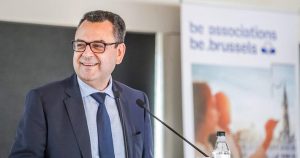The third Destinations for All Summit 2021 will be held in September 2021 in Miami, USA
Summit date: 19 to 21 September 2021
Summit place: Hilton Miami Downton Hotel in Miami (Florida - US)
In 2021, the third world summit on accessible tourism will take place in Miami. What will be the main purpose of the summit?
We want to follow up on the work being done in Brussels and Montreal. We need to have a moment to look back to the beginning to see where some of us started and how we have progressed. We also want to welcome our newcomers and we will have full programming for them as well, such as giving website accessibility for beginners, and perhaps a program for those looking to expand their online presence. It is important to bring new ideas to the table while ensuring we address older topics for those who are further along in their accessibility/inclusion projects.
What will be the key topics of discussion and who will you have as speakers?
Destinations and technology, of course, will be big topics. These are likely to be divided among many categories. Hotels, airlines, airports, and ground transport will also be strong discussion points and we hope to encourage many travel agents and other travel professionals to attend. The speakers will be leaders in their respective fields, from academia, government, industry professionals, and of course, travellers with disabilities.
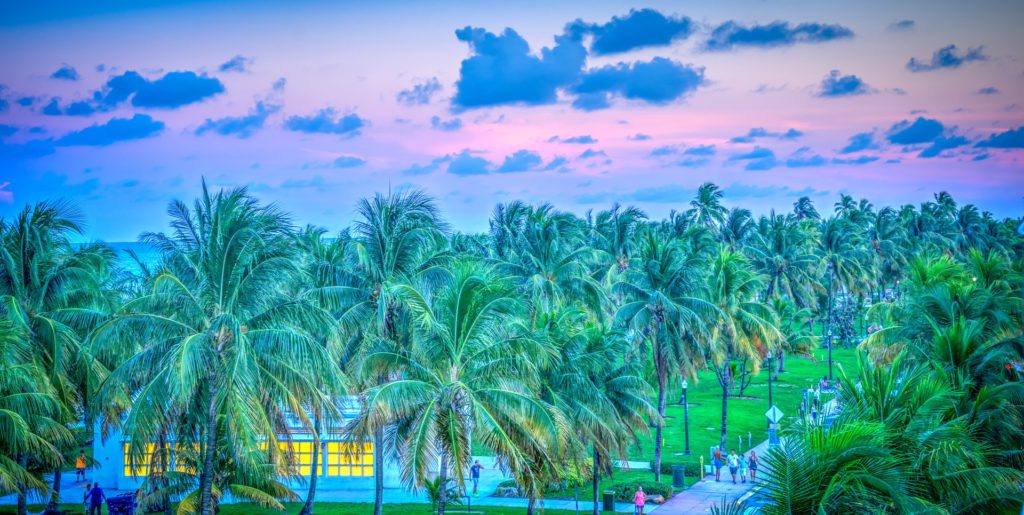
What are the main challenges for the 2021 summit, and how can they be resolved?
Information will be the main obstacle for the DFA 2021 summit. We have to find ways of spreading the word about the event to every inch of the globe. We hope that the “word of mouth” network will encourage everyone to attend, but we would also like to make attendance easy and affordable. A major challenge will be to raise enough money to subsidise certain people who may not be able to afford to participate otherwise.
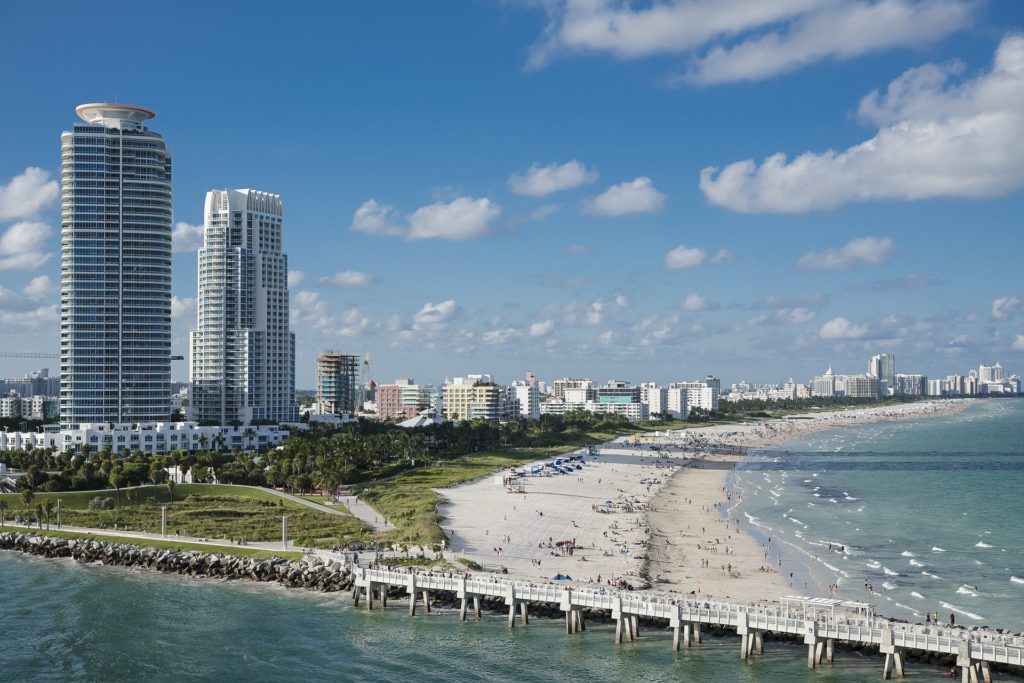
Why was Miami chosen? What are its advantages over other destinations?
Miami is a gateway to the United States and it really exemplifies the diversity and multicultural aspects that appeal to the organisers of events such as DFA. Miami also has a world class airport and accessible transportation that makes it easy to get in and out of the city: not to mention the hospitable people, the great food, and of course, the weather! All this and beautiful, accessible beaches and sidewalks make Miami the perfect destination for all!
What three qualities most appeal to you about Miami?
There is a large population of people with disabilities, and the fact that Miami and Florida are huge tourist destinations, so the event will have an impact on an area of the country that should be showcased.
What would you recommend to international delegates if they could only visit three places in Miami?
Visit the famous Miami Beaches. Walk the streets of South Beach, or enjoy a stroll around the cosmopolitan Bayside Market, just a short distance away from Port Miami with its cruise ship terminals.
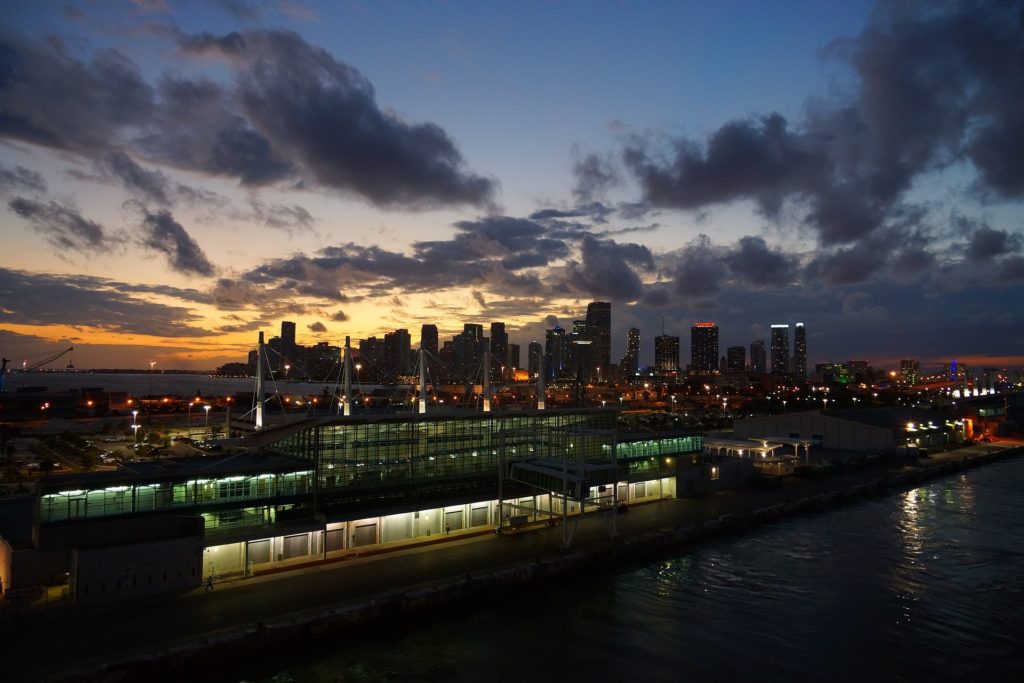
A website dedicated to the 2021 summit will soon be online.
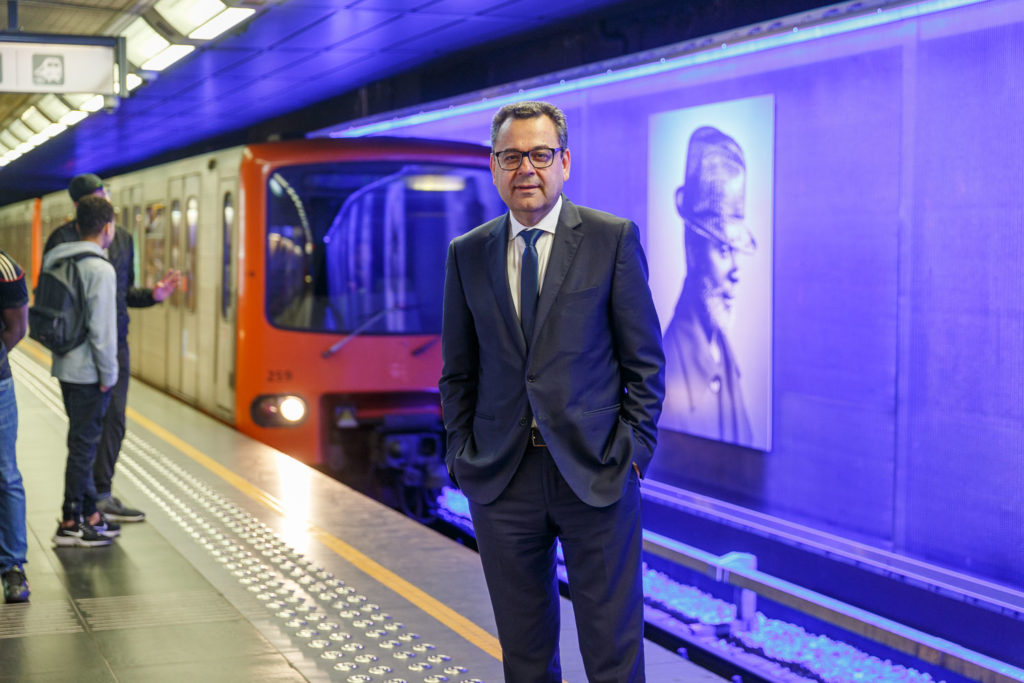
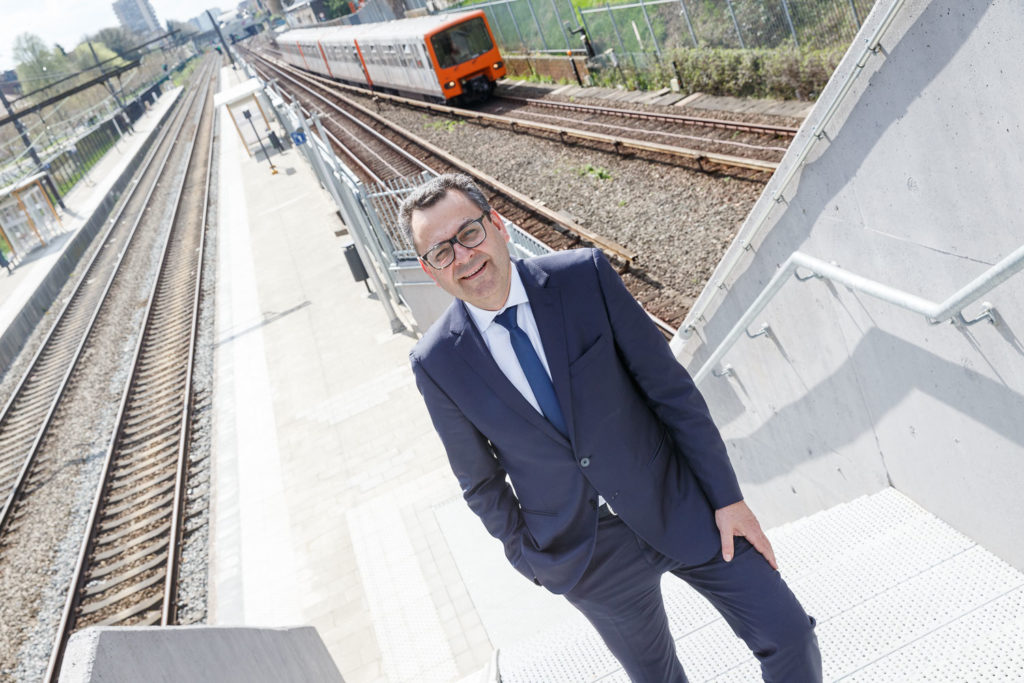
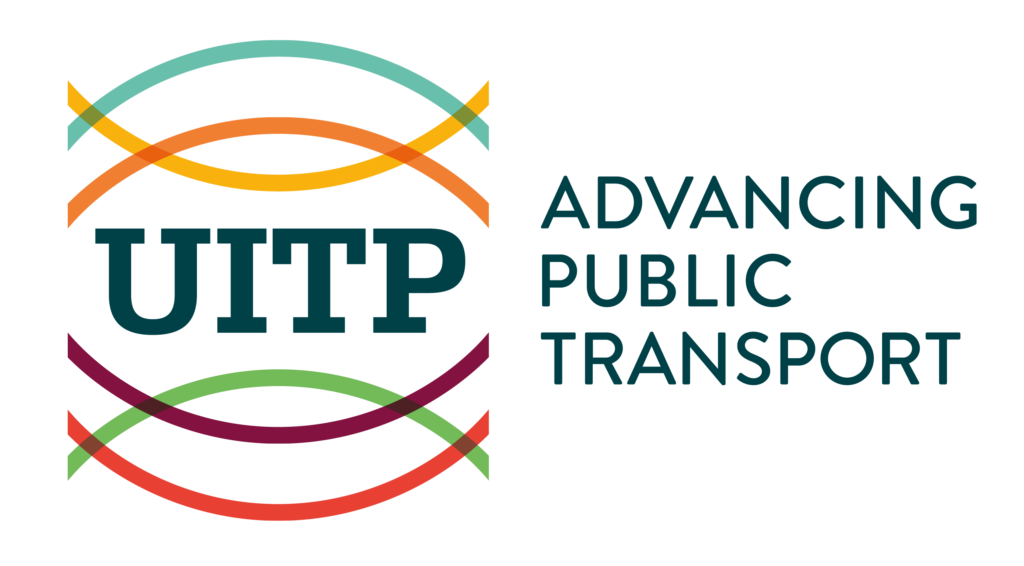
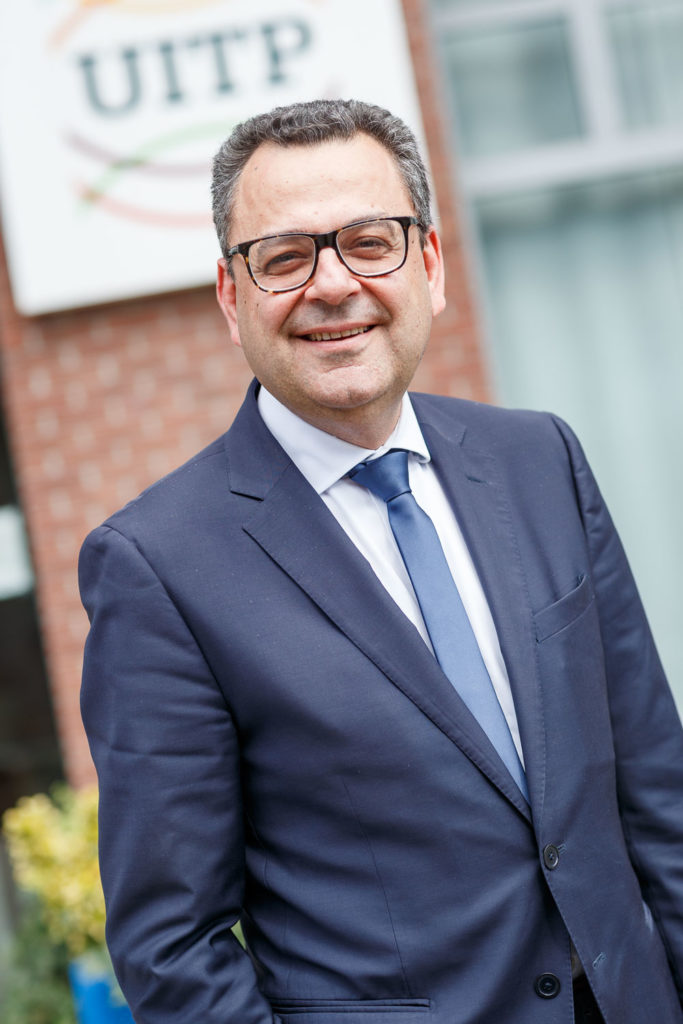
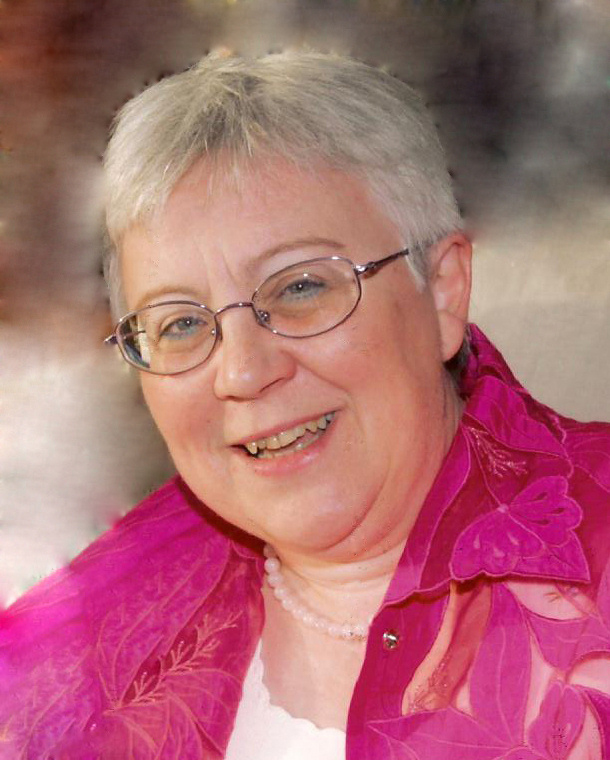
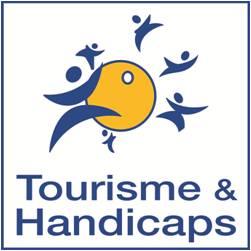
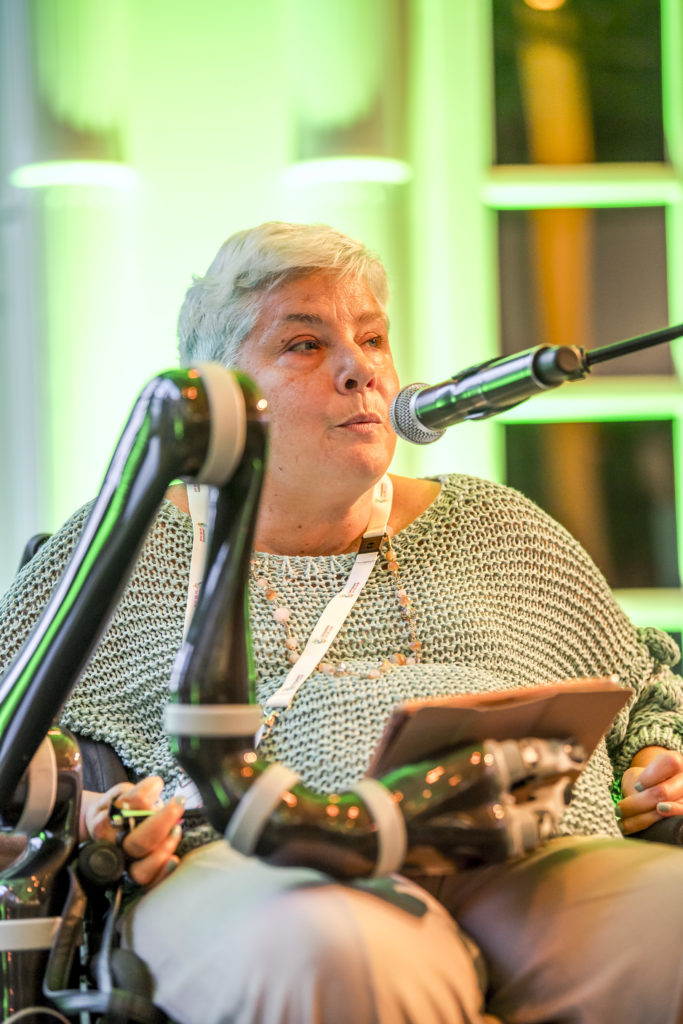
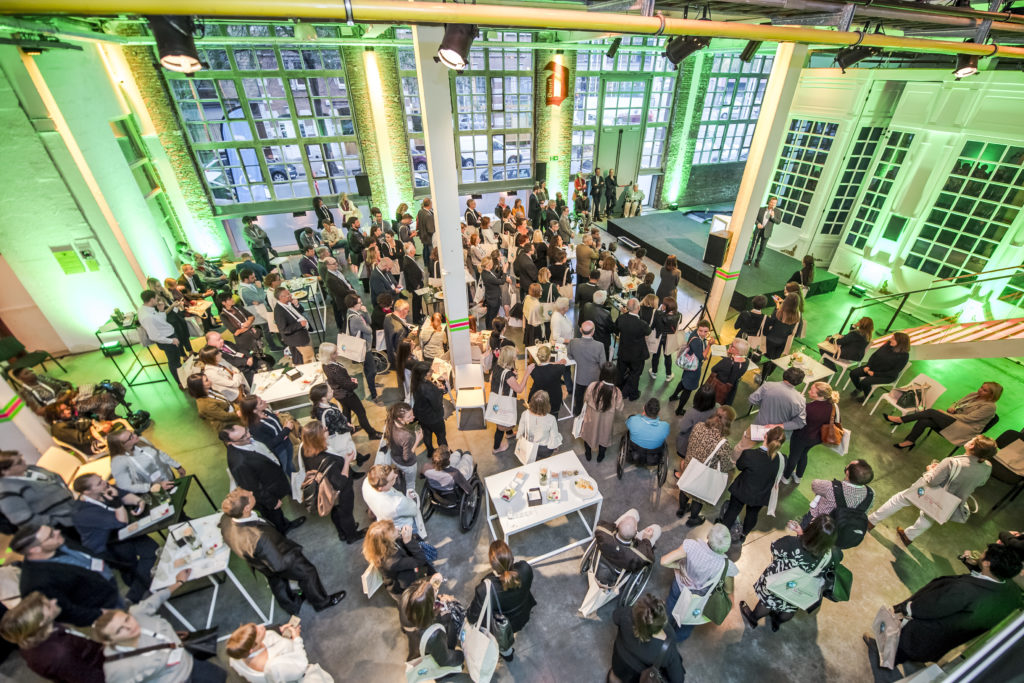
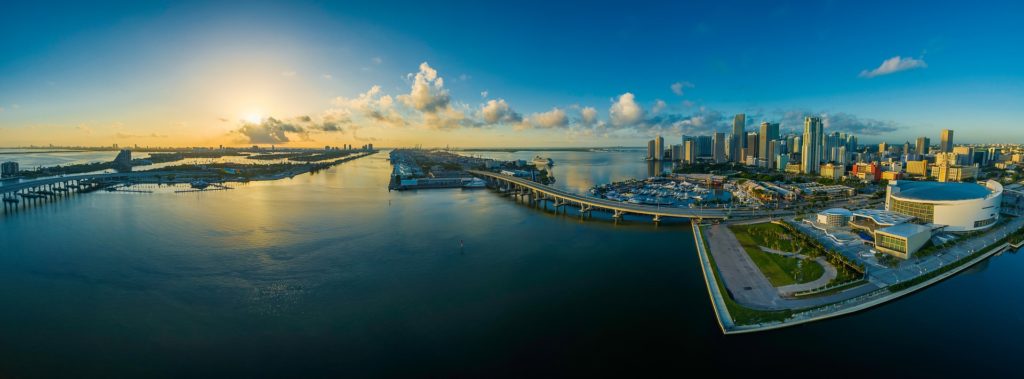
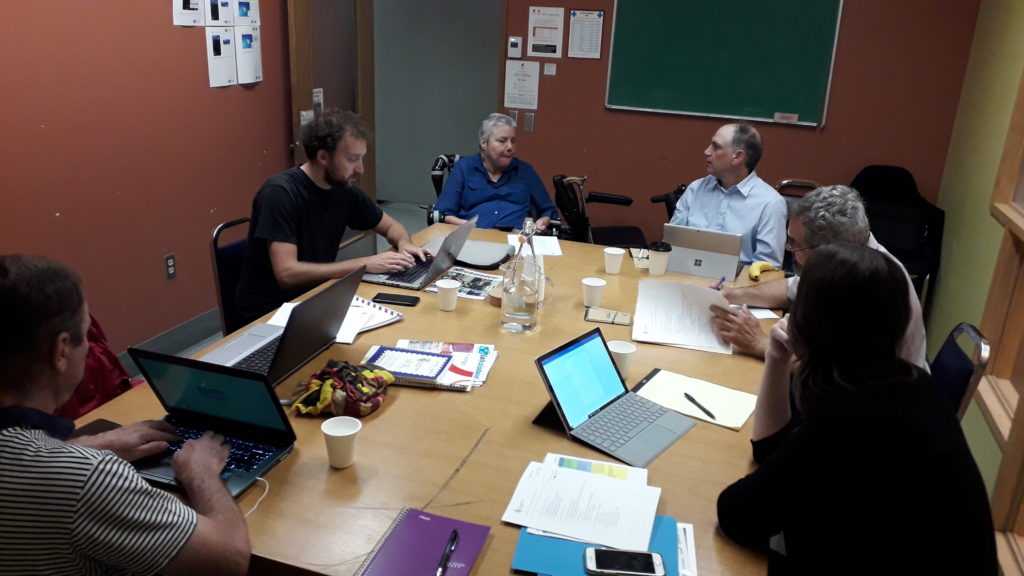
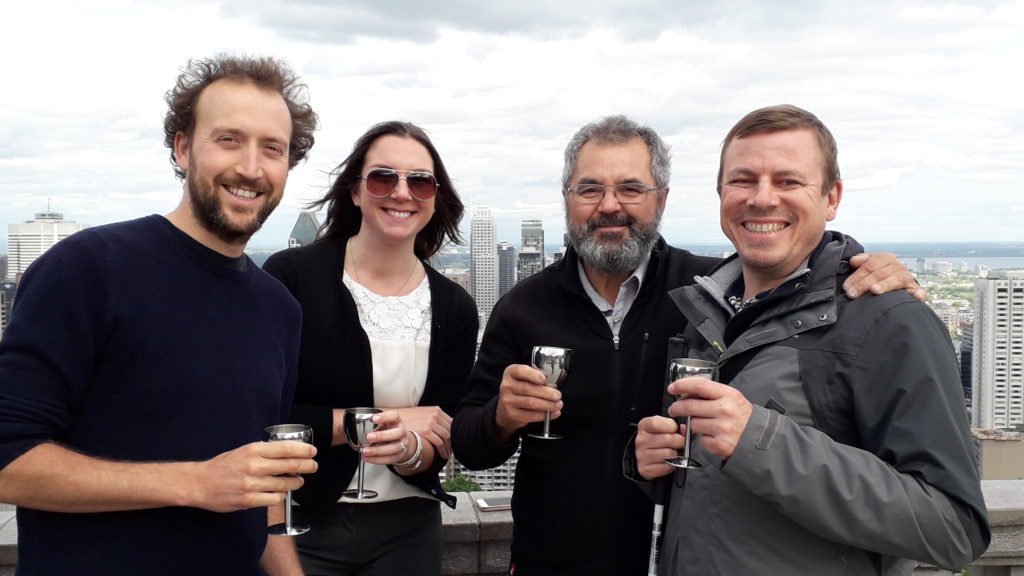
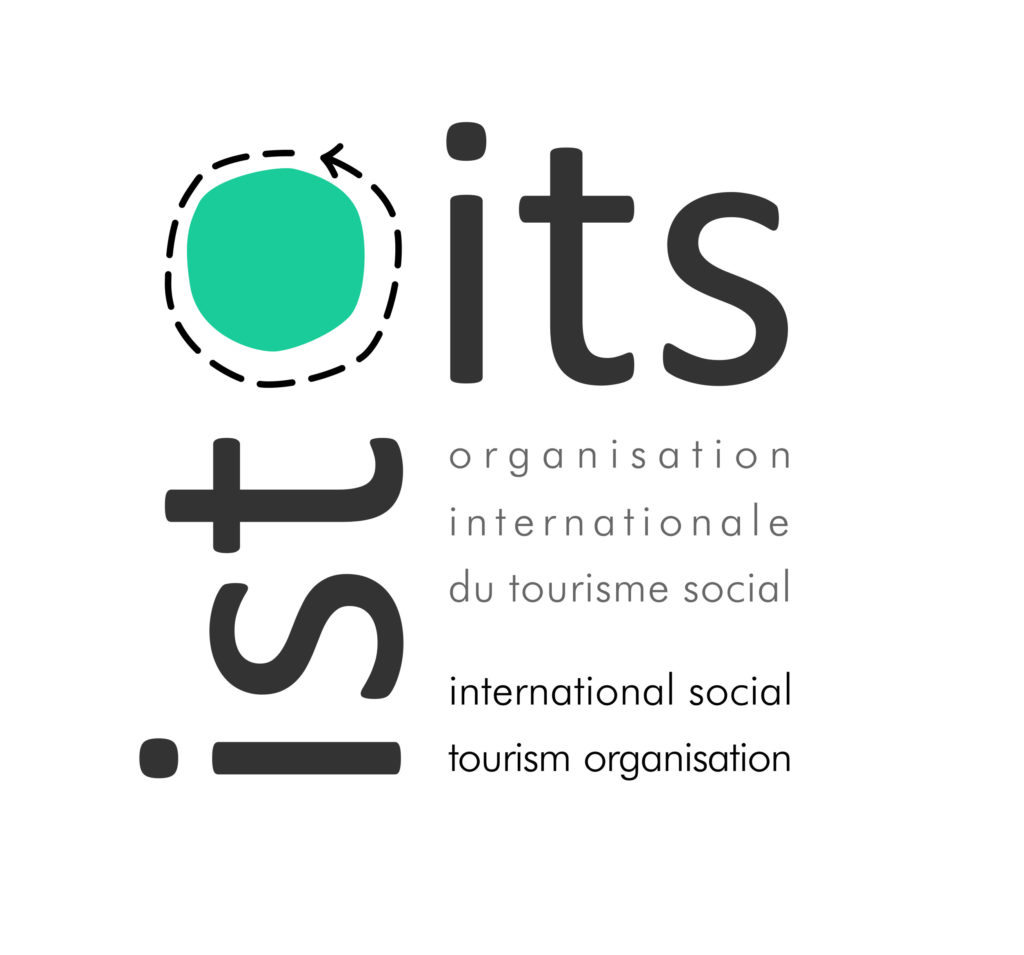
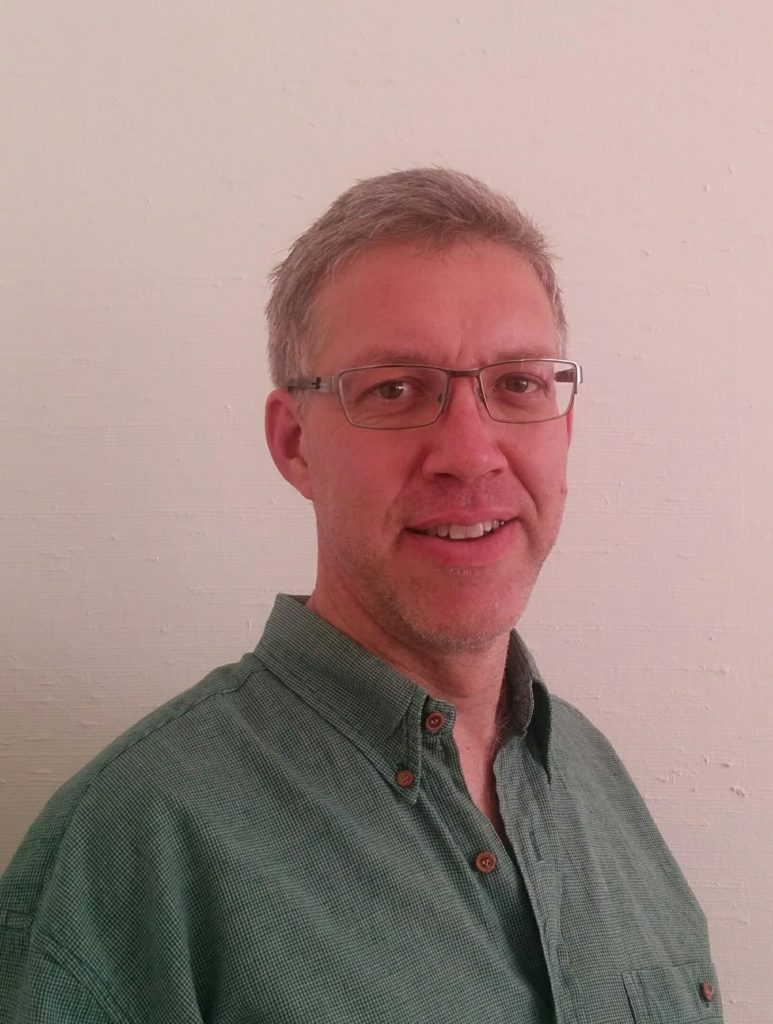 You represent more than 160 public, private and social member organisations in nearly 40 countries. What is the global mission of the organisation?
We see our mission as twofold: to encourage the development of tourism for all and to promote and support the various forms of tourism – responsible, united, fair, and community – in line with the Sustainable Development Goals (SDGs) of the United Nations Development Programme.
As director, what is your role?
I coordinate the implementation of the actions carried out in terms of representation, of member networking and the development of knowledge and realisation of projects. This is accomplished through the various bodies of the organization and at the level of its regional divisions (in the Americas, Europe, and Africa), its Alliance on Training and Research, and its Task Force and working groups.
You have joined the newly formed steering committee of Destinations for All (DFA). How and why did you choose to get involved in the continuation of DFA?
Our commitment is long-standing. ISTO joined Destinations for All for its first edition in Montreal in 2014, and continued its commitment to the Summit in 2018 in Brussels. It was an obvious step for us, as the issue of accessible tourism, holidays and leisure for the greatest number of people, including people with disabilities, is at the heart of our association's mission. In addition to being involved in the organization of the first two summits and participating in conferences and workshops, ISTO promoted DFA throughout its extensive network.
You represent more than 160 public, private and social member organisations in nearly 40 countries. What is the global mission of the organisation?
We see our mission as twofold: to encourage the development of tourism for all and to promote and support the various forms of tourism – responsible, united, fair, and community – in line with the Sustainable Development Goals (SDGs) of the United Nations Development Programme.
As director, what is your role?
I coordinate the implementation of the actions carried out in terms of representation, of member networking and the development of knowledge and realisation of projects. This is accomplished through the various bodies of the organization and at the level of its regional divisions (in the Americas, Europe, and Africa), its Alliance on Training and Research, and its Task Force and working groups.
You have joined the newly formed steering committee of Destinations for All (DFA). How and why did you choose to get involved in the continuation of DFA?
Our commitment is long-standing. ISTO joined Destinations for All for its first edition in Montreal in 2014, and continued its commitment to the Summit in 2018 in Brussels. It was an obvious step for us, as the issue of accessible tourism, holidays and leisure for the greatest number of people, including people with disabilities, is at the heart of our association's mission. In addition to being involved in the organization of the first two summits and participating in conferences and workshops, ISTO promoted DFA throughout its extensive network.
 More about Destinations for All steering committee members
More about Destinations for All steering committee members
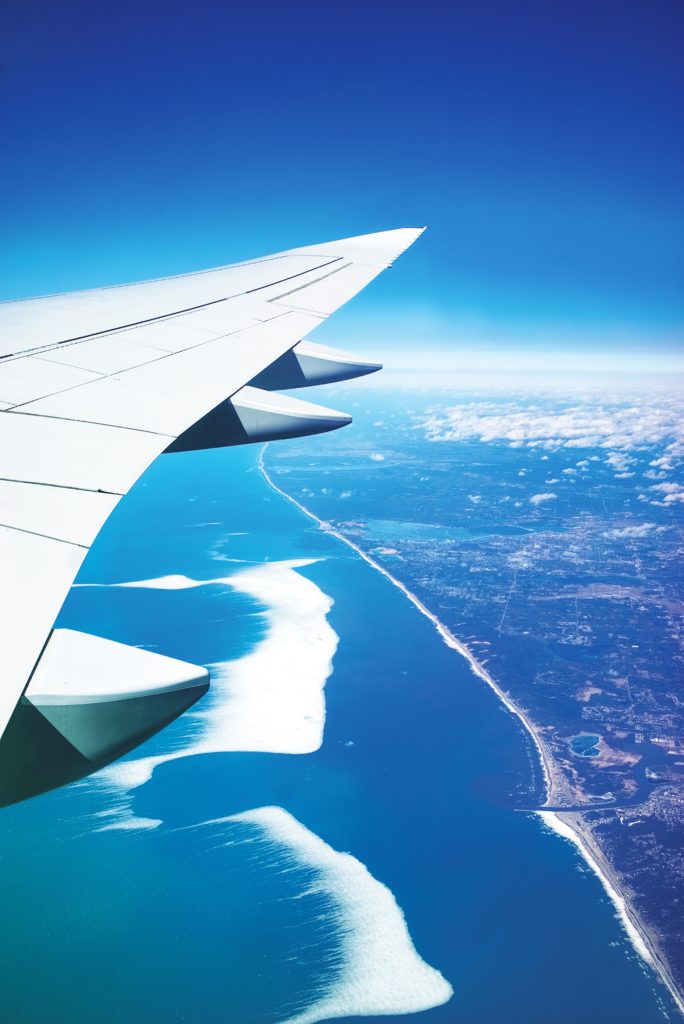
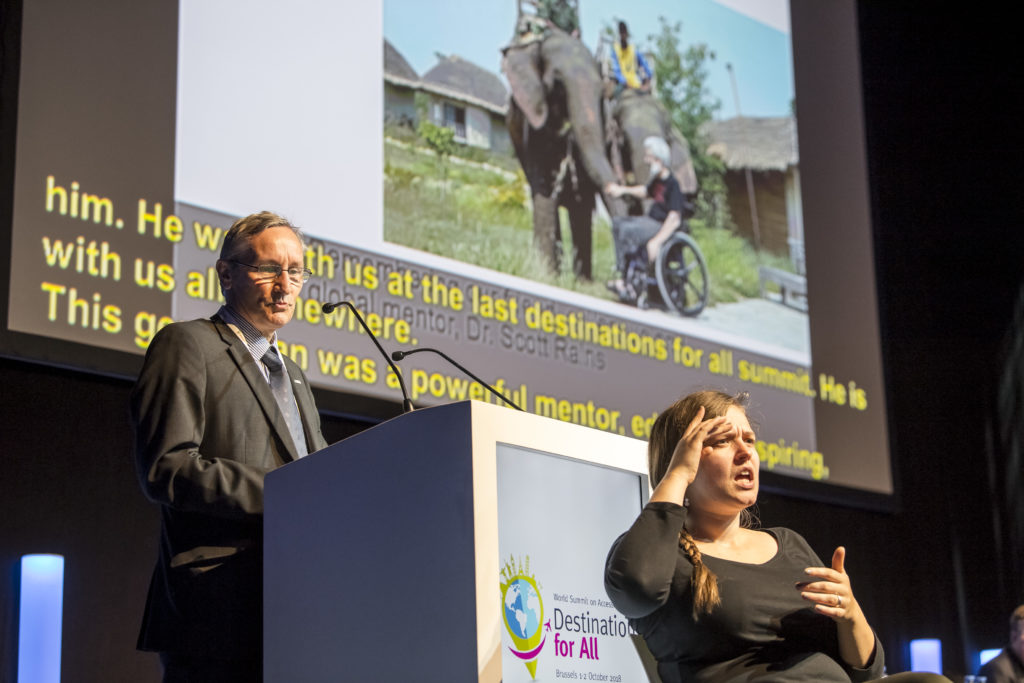

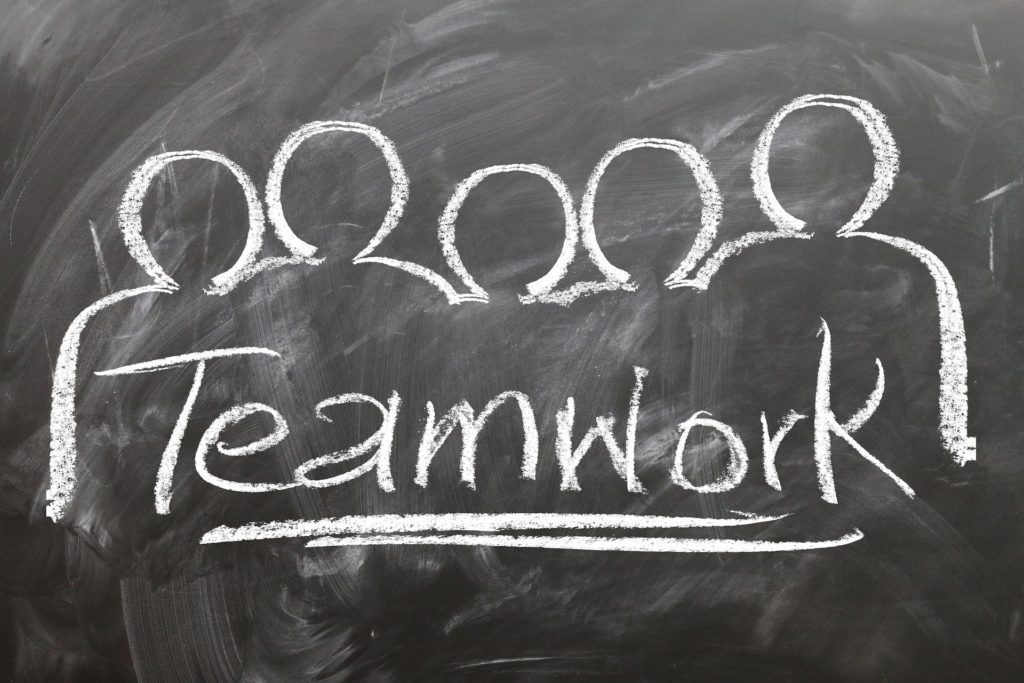
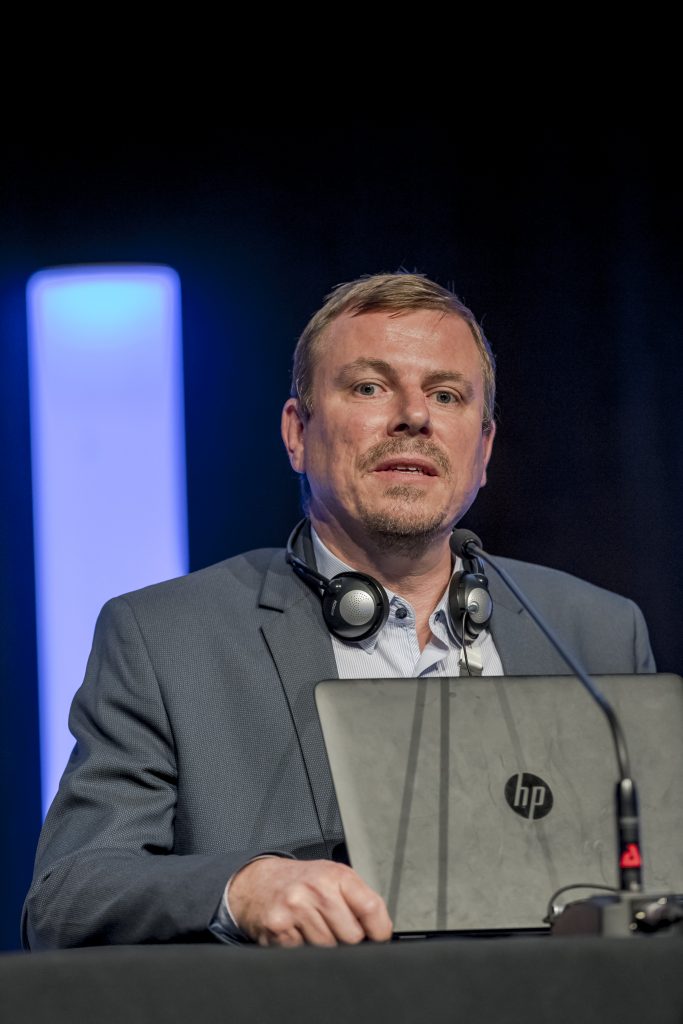
 Making tourism accessible to everyone relies on the input of influencers such as early adopters, bloggers, social media, and word of mouth, etc. Their opinions and advice help us to alter our attitudes, and to bring about change. By example, they educate us as to what accessibility should mean. Their interventions allow us to think out of the box.
The information gained from their shared experiences is vital to decision-making and the part played by all the actors in accessible tourism.
An influencer can play a facilitative role at three levels: share of knowledge, standards establishment and performance mesasures.
Making tourism accessible to everyone relies on the input of influencers such as early adopters, bloggers, social media, and word of mouth, etc. Their opinions and advice help us to alter our attitudes, and to bring about change. By example, they educate us as to what accessibility should mean. Their interventions allow us to think out of the box.
The information gained from their shared experiences is vital to decision-making and the part played by all the actors in accessible tourism.
An influencer can play a facilitative role at three levels: share of knowledge, standards establishment and performance mesasures.
 We can envisage that one day, all flights will be accessible by wheelchair. Some progress has already been made.
In the United States, legislation was passed this October 2018 to provide wheelchair spaces in planes. In fact, the potential of air transport for people with reduced mobility is enormous, but there are still too few initiatives.
In Germany, the number of potential passengers with reduced mobility (PRM), is estimated at 10%, but only 1% of them travel by plane. Before and after the aircraft takes off, airports have a responsibility to offer services to persons with reduced mobility. They have to take over if the airline does not offer assistance. The use of new technologies also helps a wider audience, who may have intellectual or visual disabilities.
We can envisage that one day, all flights will be accessible by wheelchair. Some progress has already been made.
In the United States, legislation was passed this October 2018 to provide wheelchair spaces in planes. In fact, the potential of air transport for people with reduced mobility is enormous, but there are still too few initiatives.
In Germany, the number of potential passengers with reduced mobility (PRM), is estimated at 10%, but only 1% of them travel by plane. Before and after the aircraft takes off, airports have a responsibility to offer services to persons with reduced mobility. They have to take over if the airline does not offer assistance. The use of new technologies also helps a wider audience, who may have intellectual or visual disabilities.
 Even with a low budget, destinations, transport or tourism operators can significantly improve the accessibility of destinations. Because the slightest initiative in one place is often an oil spill and will give the impetus to inspire neighbouring actors to do the same, thereby increasing accessibility. It is therefore, a question of launching the virtuous circle.
It is exactly what happened in Germany, in the Ruppin Lake area, following the building of an accessible hotel.
Another example is in Delhi: during the design stage of the city’s sidewalks, the initiative from the beginning, was to sensitize and train decision-makers and engineers to put into practice the necessary criteria to carry out the accessibility process.
Even with a low budget, destinations, transport or tourism operators can significantly improve the accessibility of destinations. Because the slightest initiative in one place is often an oil spill and will give the impetus to inspire neighbouring actors to do the same, thereby increasing accessibility. It is therefore, a question of launching the virtuous circle.
It is exactly what happened in Germany, in the Ruppin Lake area, following the building of an accessible hotel.
Another example is in Delhi: during the design stage of the city’s sidewalks, the initiative from the beginning, was to sensitize and train decision-makers and engineers to put into practice the necessary criteria to carry out the accessibility process.
 The accessible journey starts locally, with us.
For tourist operators, making a destination accessible is a journey in itself. It is an evolutionary and interactive process that is carried out in close cooperation with the local community as is done in Rostock (Germany) or in Bordeaux (France).
The accessible journey starts locally, with us.
For tourist operators, making a destination accessible is a journey in itself. It is an evolutionary and interactive process that is carried out in close cooperation with the local community as is done in Rostock (Germany) or in Bordeaux (France).
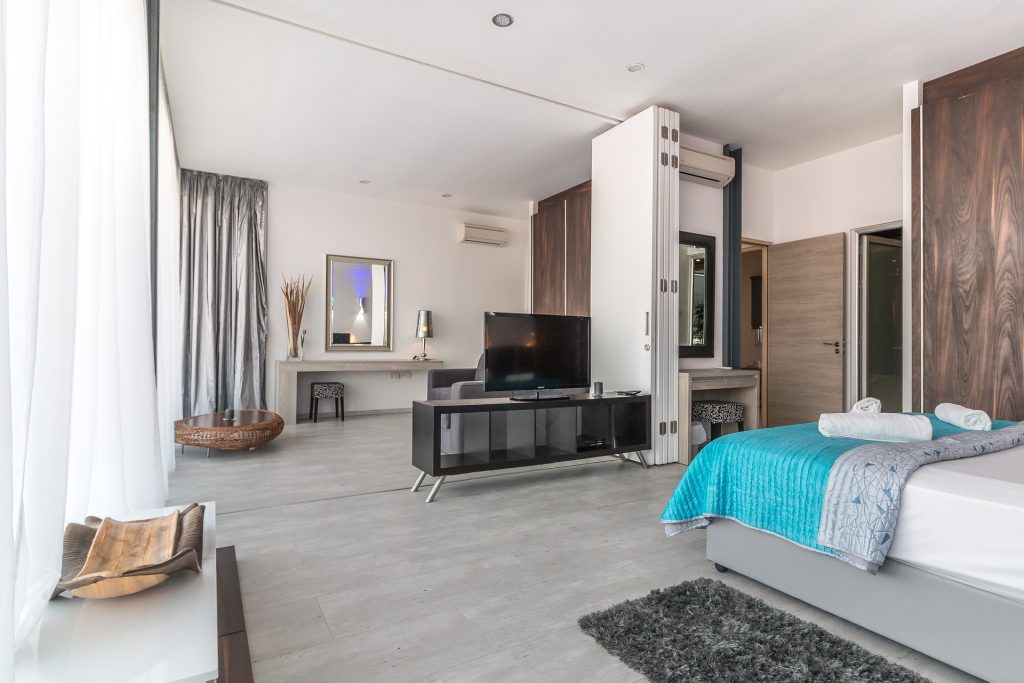 Without accessible buildings, there can be no inclusive vacation!
People with reduced mobility need to travel more to develop the tourism sector. In the hotel industry, good practices target several types of tourist support and create appropriate offers.
These could include specific hotels dedicated to families or couples with a member suffering from intellectual loss or dementia, etc.
An inclusive hotel can not only be accessible for all, but it can also be managed by disabled people, with the help of consultation and partnerships.
Without accessible buildings, there can be no inclusive vacation!
People with reduced mobility need to travel more to develop the tourism sector. In the hotel industry, good practices target several types of tourist support and create appropriate offers.
These could include specific hotels dedicated to families or couples with a member suffering from intellectual loss or dementia, etc.
An inclusive hotel can not only be accessible for all, but it can also be managed by disabled people, with the help of consultation and partnerships.
 Degree and diploma courses in tourism, or even tourism development plans, leave far too little room for specific needs. In the field, training for specialists such as architects, should also be ongoing.
Professional recognition of specialists and consultants in accessibility is lacking, and should also be considered.
Accessible tourism should not be subject to a specific ISO standard, but should be included in each of the ISO standards for tourism.
Degree and diploma courses in tourism, or even tourism development plans, leave far too little room for specific needs. In the field, training for specialists such as architects, should also be ongoing.
Professional recognition of specialists and consultants in accessibility is lacking, and should also be considered.
Accessible tourism should not be subject to a specific ISO standard, but should be included in each of the ISO standards for tourism.
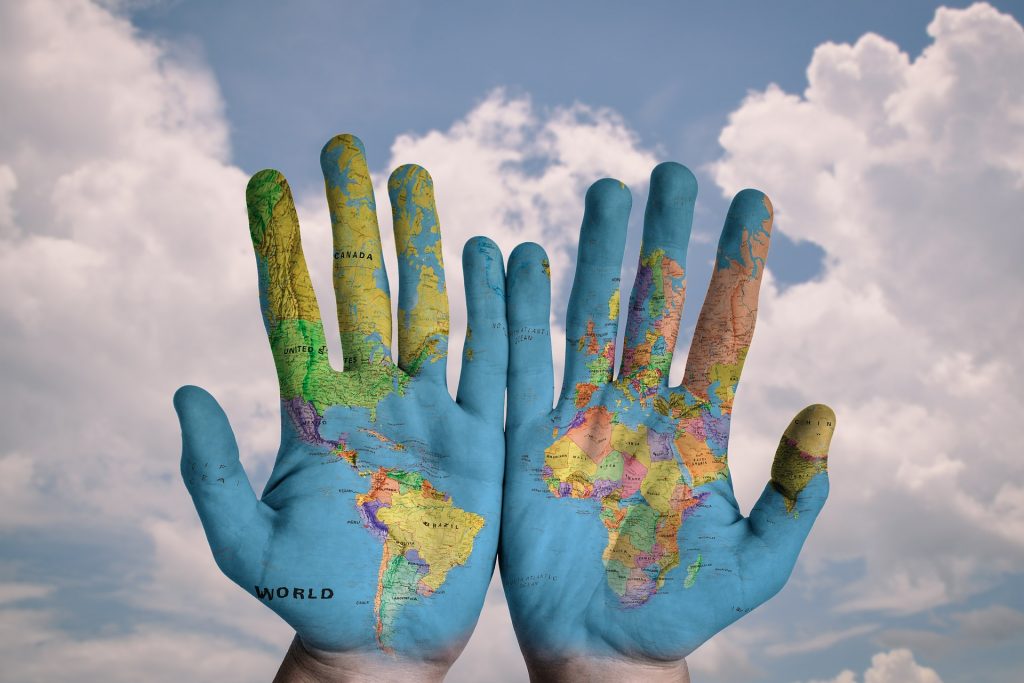 Making tourism accessible to all requires transforming the anxiety of a destination being or not being accessible into potential travel destination.
Providing transportation, personal care and specialized equipment rentals to special-needs tourists are starting to change.
For all this, it is also necessary to work hand in hand with experts in the health sector.
The key exists: The Personal Attendant for Leisure card (PAL) and the European Disability Card are free passes aiming at disabled persons to leave their home, to visit and to travel while minimizing the costs of outing or activities.
Making tourism accessible to all requires transforming the anxiety of a destination being or not being accessible into potential travel destination.
Providing transportation, personal care and specialized equipment rentals to special-needs tourists are starting to change.
For all this, it is also necessary to work hand in hand with experts in the health sector.
The key exists: The Personal Attendant for Leisure card (PAL) and the European Disability Card are free passes aiming at disabled persons to leave their home, to visit and to travel while minimizing the costs of outing or activities.
 In parks and in nature, accessibility for all equipment must be planned. To discover and appreciate nature, we can produce objects for visually impaired people (for example, birds in 3D), as well as creating sensory paths in gardens, etc. We must aim for accessibility for all types of visitors, as is the case in the Eiffel Park. It is important to continuously evolve: to improve access, and to create action plans to develop visitors’ routes, etc. There are still too few people who visit nature parks and attracting them to do so is a challenge.
In parks and in nature, accessibility for all equipment must be planned. To discover and appreciate nature, we can produce objects for visually impaired people (for example, birds in 3D), as well as creating sensory paths in gardens, etc. We must aim for accessibility for all types of visitors, as is the case in the Eiffel Park. It is important to continuously evolve: to improve access, and to create action plans to develop visitors’ routes, etc. There are still too few people who visit nature parks and attracting them to do so is a challenge.
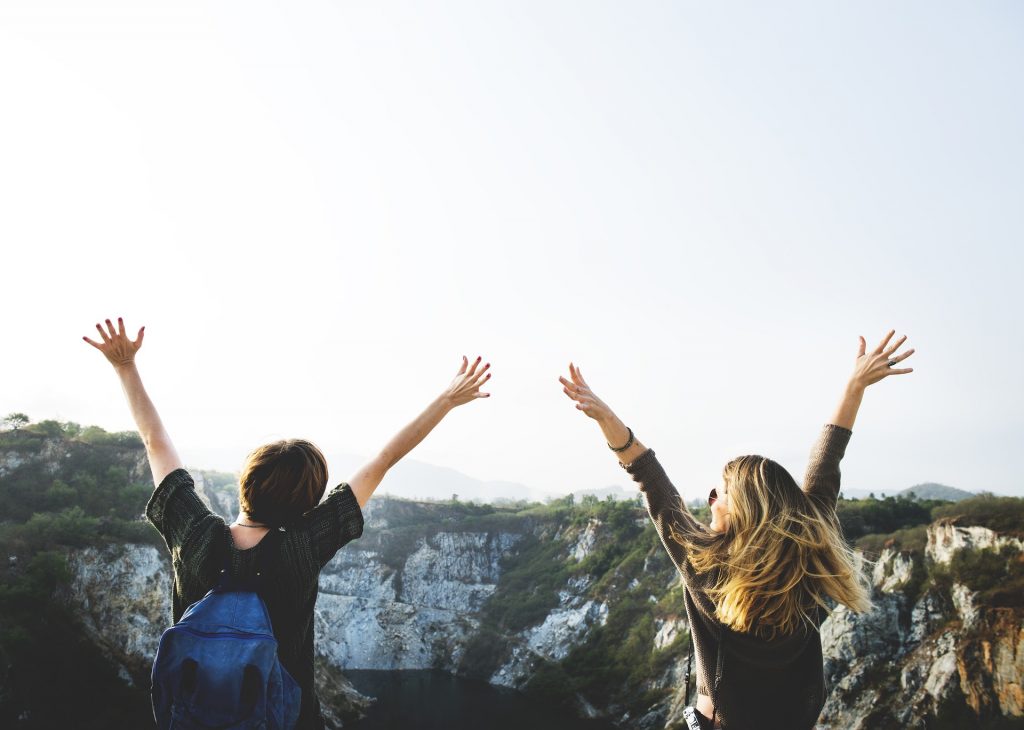 Accessible tourism must concern everyone: we must not segregate the public.
We should share emotions and make discoveries together! It is a question of being audacious because the hardest thing is to convince those who are able to do an extreme sport to motivate others to do it.
Accessible tourism must concern everyone: we must not segregate the public.
We should share emotions and make discoveries together! It is a question of being audacious because the hardest thing is to convince those who are able to do an extreme sport to motivate others to do it.
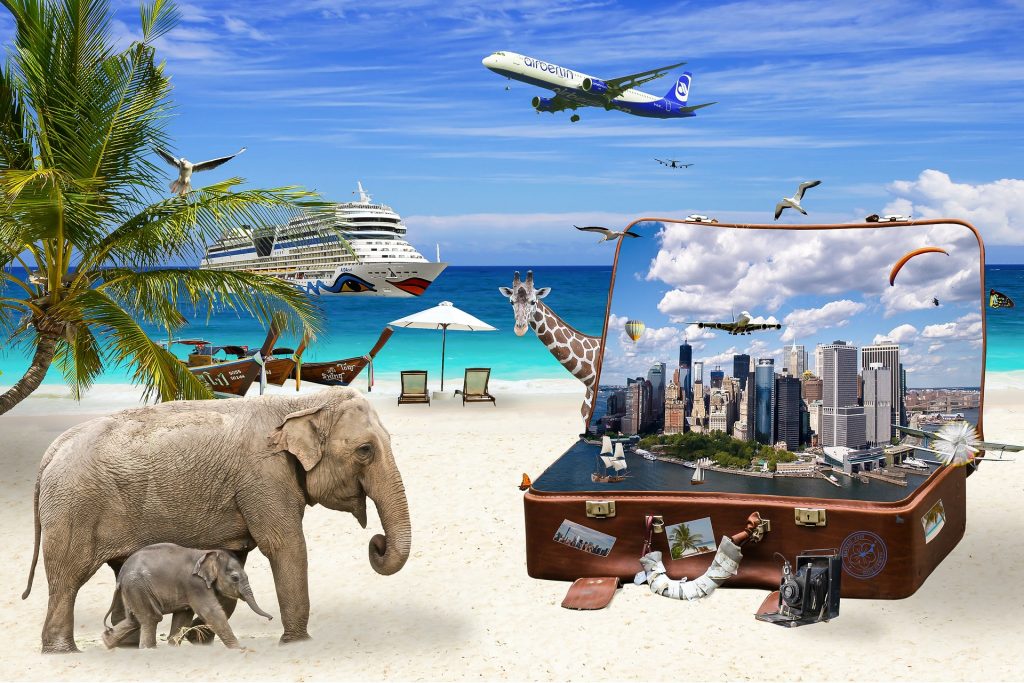 Nothing is impossible. We have to get people out of their homes. It is not necessary to be officially recognized as tour operators of accessible travel, to organize and dare.
Each travel agency can adapt to the needs of its clients (elderly, reduced mobility,...) and propose them travels adapted to their needs. Often, travellers with specific needs are looking for popular destinations before seeking for unknown destinations.
Most human beings (no matter if they have specific needs or not) have three parameters that limit them: time, money, and energy. The fear of getting started is the biggest handicap.
Nothing is impossible. We have to get people out of their homes. It is not necessary to be officially recognized as tour operators of accessible travel, to organize and dare.
Each travel agency can adapt to the needs of its clients (elderly, reduced mobility,...) and propose them travels adapted to their needs. Often, travellers with specific needs are looking for popular destinations before seeking for unknown destinations.
Most human beings (no matter if they have specific needs or not) have three parameters that limit them: time, money, and energy. The fear of getting started is the biggest handicap. 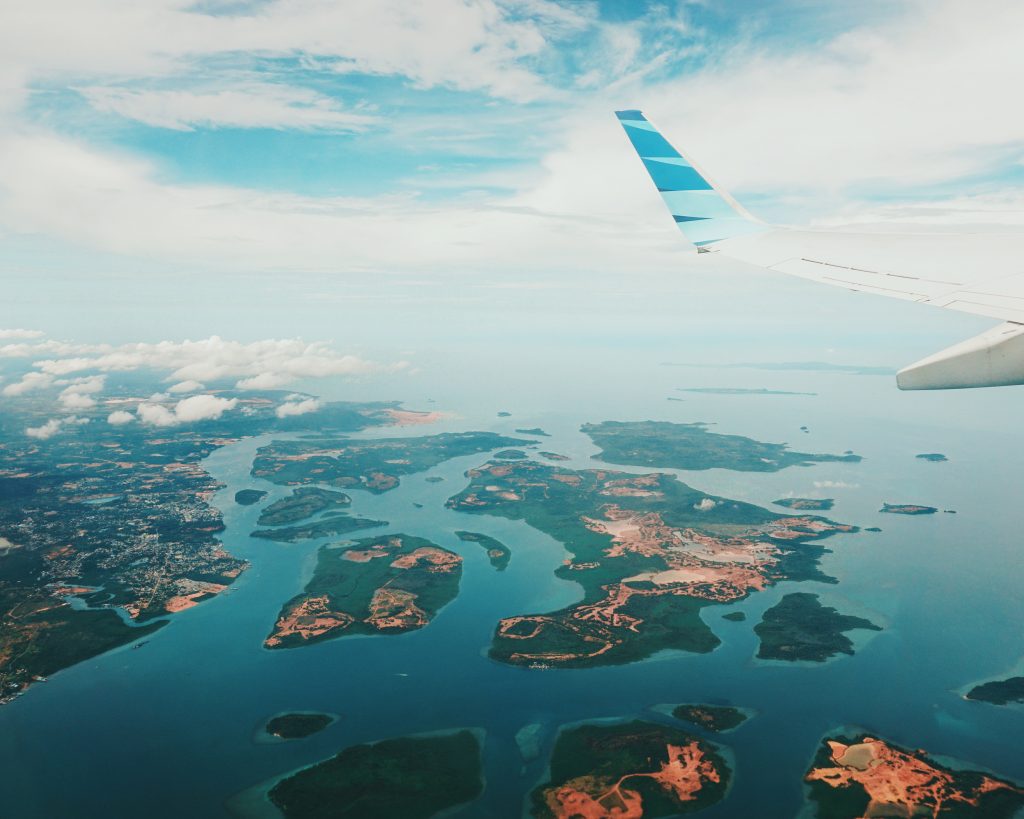 “Disability does not equate to inactivity!”
This session highlighted the importance of linking all aspects in the tourism chain (airports, local transports, hotels, venues).
A destination is like an archipelago of many islands where cultural and leisure activities as well as services (accommodation, restaurants, etc.) are not necessarily found in the more equipped areas, so connections have to be made.
The key is to consider a destination as a whole, because links in the tourism chain are not that often equally distributed.
We must not forget the family and the accompanying persons. We have to develop destinations for all and everyone.
It is also important to be adapted to the specificities of each place and each individual. There are no standard solutions, and technological innovations are welcome. The greatest satisfaction is to make it possible, and that the customer experience must remain at the centre of the approach.
“Disability does not equate to inactivity!”
This session highlighted the importance of linking all aspects in the tourism chain (airports, local transports, hotels, venues).
A destination is like an archipelago of many islands where cultural and leisure activities as well as services (accommodation, restaurants, etc.) are not necessarily found in the more equipped areas, so connections have to be made.
The key is to consider a destination as a whole, because links in the tourism chain are not that often equally distributed.
We must not forget the family and the accompanying persons. We have to develop destinations for all and everyone.
It is also important to be adapted to the specificities of each place and each individual. There are no standard solutions, and technological innovations are welcome. The greatest satisfaction is to make it possible, and that the customer experience must remain at the centre of the approach.
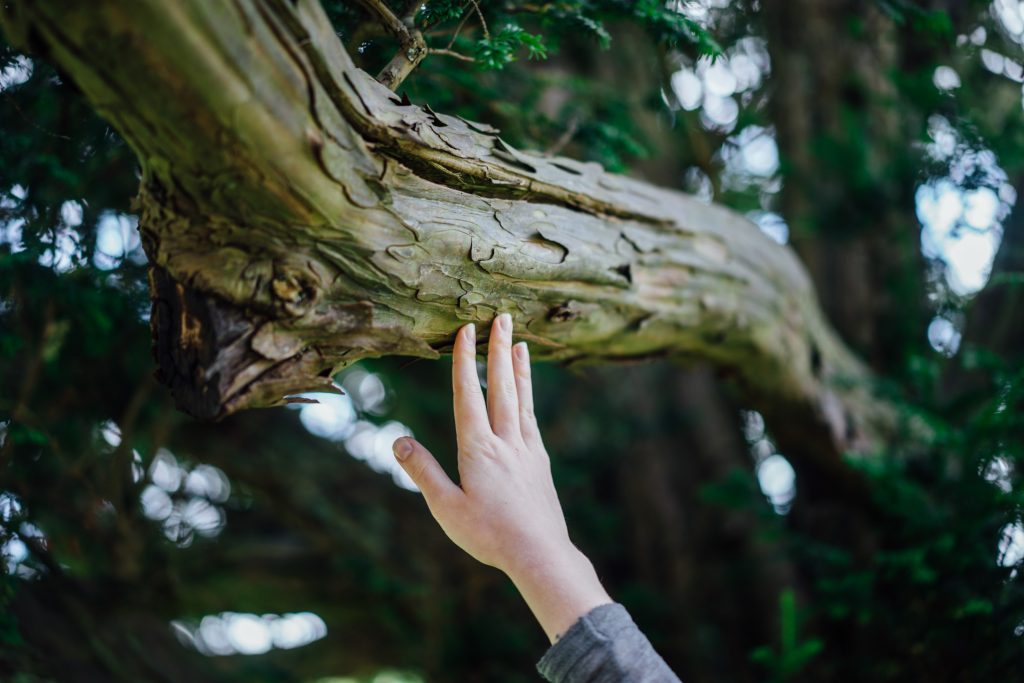 The use of various supports and accessibility tools can help visually impaired people to experience a destination.
As much as 30% of Europeans have difficulty reading or understanding, so accessibility tools and aids plays a huge part in the experience of the tourist with specific needs: audio description, digital guides, sign language, subtitling, and other devices or aids allow the inclusion of people with special needs who need to feel as comfortable abroad as they do at home. But it will also improve the experience of anyone else wishing to take advantage of the place.
The use of various supports and accessibility tools can help visually impaired people to experience a destination.
As much as 30% of Europeans have difficulty reading or understanding, so accessibility tools and aids plays a huge part in the experience of the tourist with specific needs: audio description, digital guides, sign language, subtitling, and other devices or aids allow the inclusion of people with special needs who need to feel as comfortable abroad as they do at home. But it will also improve the experience of anyone else wishing to take advantage of the place.
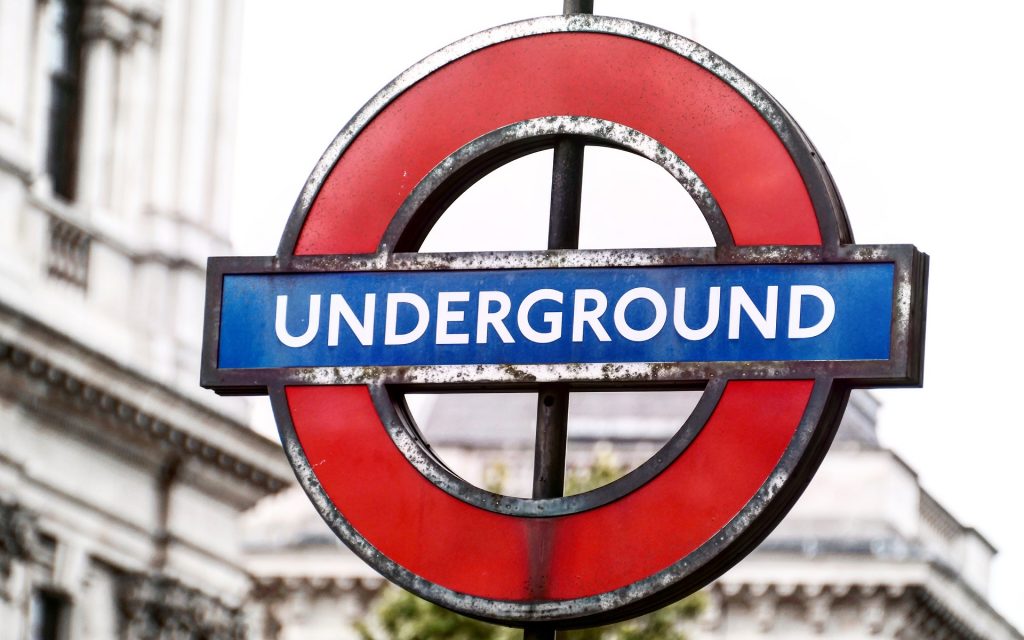 Finding solutions that meet all needs is not easy. It is about changing habits and perspective from design to the manufacture of products that are adaptable to the user’s requirements.Stockholm has tested multi-sensory ticket dispensers on boarding platforms (rather than in the vehicles themselves).
Ambitions can be realised and concrete projects are in the pipeline. Czechoslovakia has committed to make every one of its underground stations in Prague accessible to all users by 2025. In Cagliari (Italy), an application in real time provides increased accessibility levels at stops, and access to specific assistance.
Within five years, Paris public transport will put in place concrete measures for communication and welcoming (this includes adapted signage, training of staff, and close collaboration with the associative community).
Finding solutions that meet all needs is not easy. It is about changing habits and perspective from design to the manufacture of products that are adaptable to the user’s requirements.Stockholm has tested multi-sensory ticket dispensers on boarding platforms (rather than in the vehicles themselves).
Ambitions can be realised and concrete projects are in the pipeline. Czechoslovakia has committed to make every one of its underground stations in Prague accessible to all users by 2025. In Cagliari (Italy), an application in real time provides increased accessibility levels at stops, and access to specific assistance.
Within five years, Paris public transport will put in place concrete measures for communication and welcoming (this includes adapted signage, training of staff, and close collaboration with the associative community).
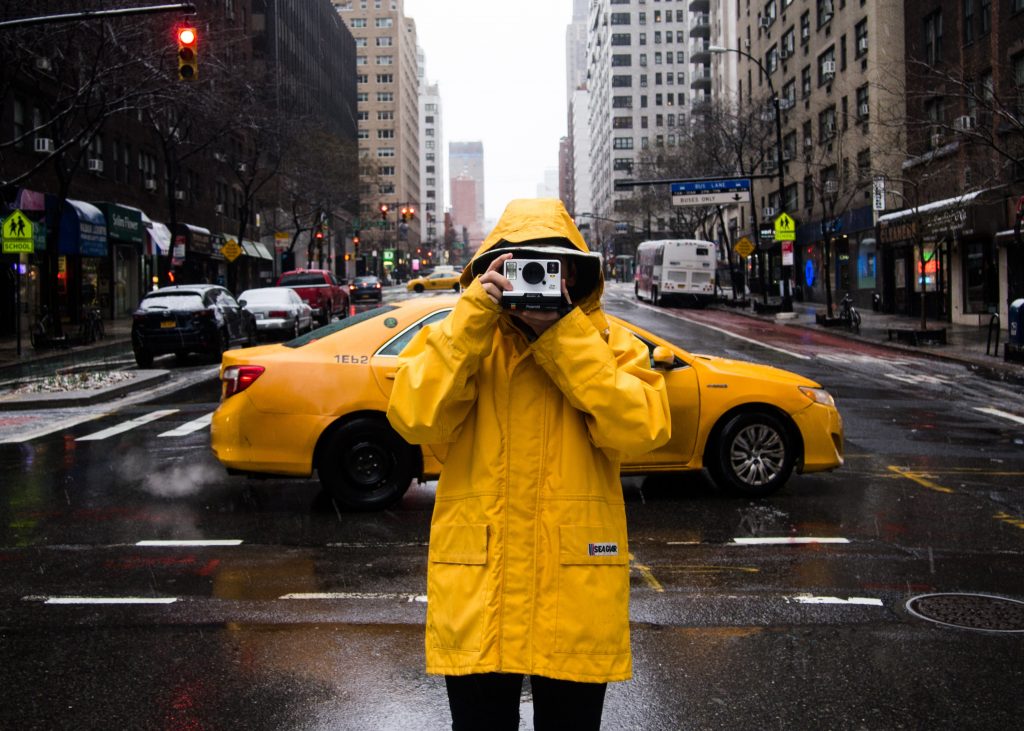 As far as individual transport is concerned (taxis), there should be strong standards: accessibility rules and regulations should be implemented.
This sector must also evolve with adapted vehicles, better offers, reduced waiting times, and easier booking facilities, etc.
Finally, public authorities should put incentives in place to encourage taxi companies to make their vehicles and their services accessible.
As far as individual transport is concerned (taxis), there should be strong standards: accessibility rules and regulations should be implemented.
This sector must also evolve with adapted vehicles, better offers, reduced waiting times, and easier booking facilities, etc.
Finally, public authorities should put incentives in place to encourage taxi companies to make their vehicles and their services accessible.
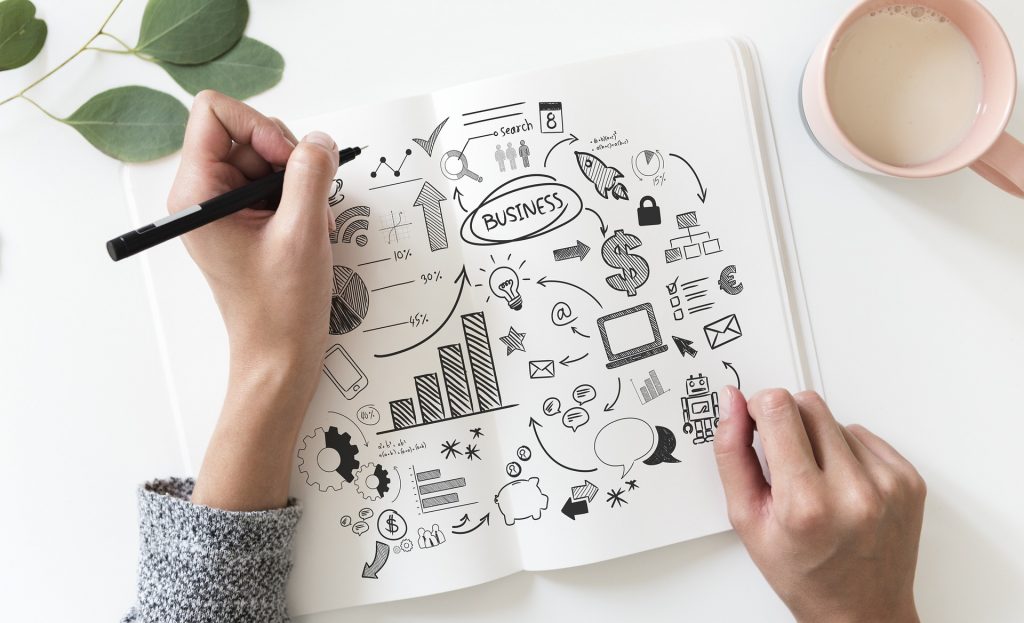 All accessibility issues must be worked out with Destination Management Organizations (DMOs).The association and the good collaboration between organizations for the disabled, experts in accessibility (for certification) and the DMOs is essential.
The accessibility offer of a destination must be marketed, and the way in which the information is disseminated must not be ignored: communication at every level – online and available to all.
All accessibility issues must be worked out with Destination Management Organizations (DMOs).The association and the good collaboration between organizations for the disabled, experts in accessibility (for certification) and the DMOs is essential.
The accessibility offer of a destination must be marketed, and the way in which the information is disseminated must not be ignored: communication at every level – online and available to all.
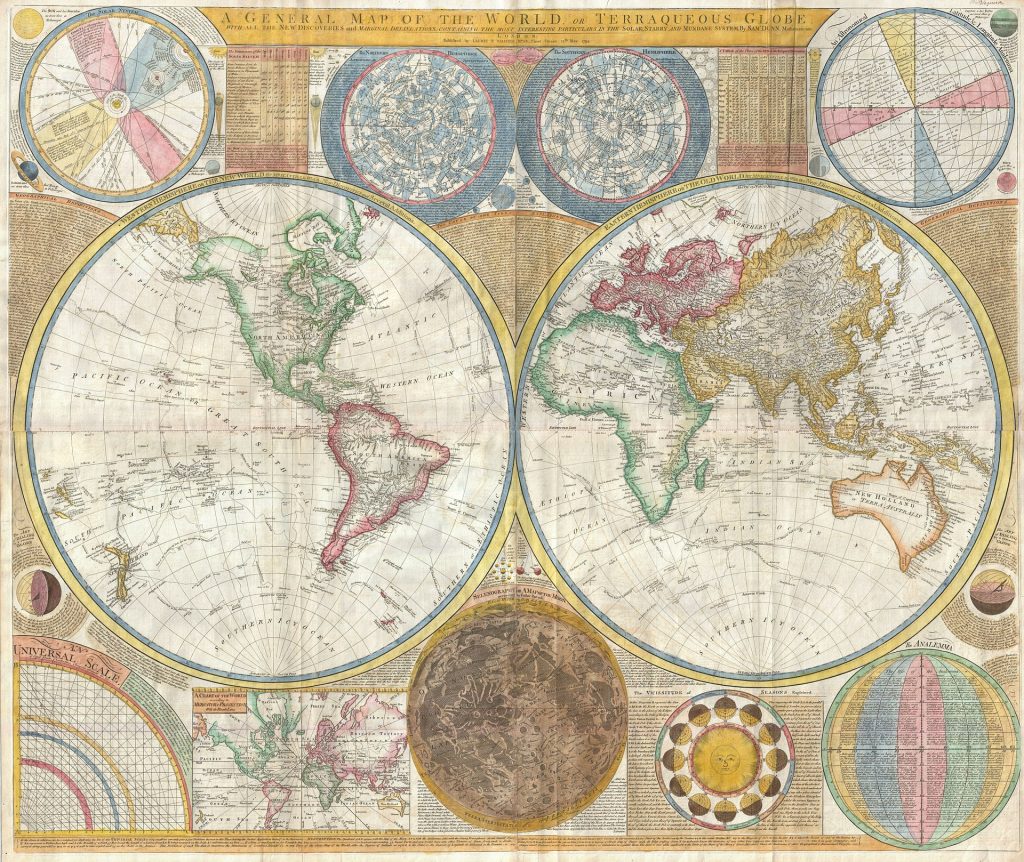 It is imperative to develop a reliable and verified information system that is detailed according to specific needs.
From the discussions, a global, rather than local approach, is preferable. A few examples: An international system for beaches and boats has been submitted, Germany and Denmark are developing systems at national level (which will be much easier to understand and touse), ...
By improving the accessibility of our destinations and promoting them with brands and certifications, we will gain in attractiveness and competitiveness. Studies show that, on average, people with disabilities spend more than other tourists.
It is imperative to develop a reliable and verified information system that is detailed according to specific needs.
From the discussions, a global, rather than local approach, is preferable. A few examples: An international system for beaches and boats has been submitted, Germany and Denmark are developing systems at national level (which will be much easier to understand and touse), ...
By improving the accessibility of our destinations and promoting them with brands and certifications, we will gain in attractiveness and competitiveness. Studies show that, on average, people with disabilities spend more than other tourists.
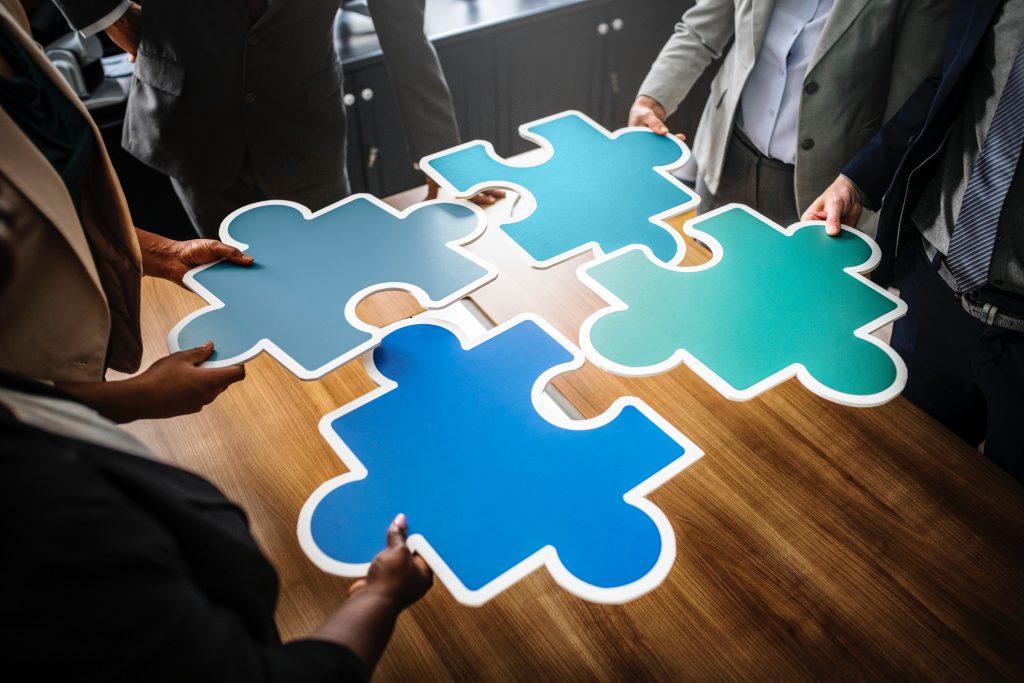 Government support and political goodwill are key elements to achieve comprehensive accessibility.
In practice, public authorities have different options: formal legislation or texts, granting subsidies, incentives, ... There are encouraging examples in Portugal and in Lebanon.
Government support and political goodwill are key elements to achieve comprehensive accessibility.
In practice, public authorities have different options: formal legislation or texts, granting subsidies, incentives, ... There are encouraging examples in Portugal and in Lebanon.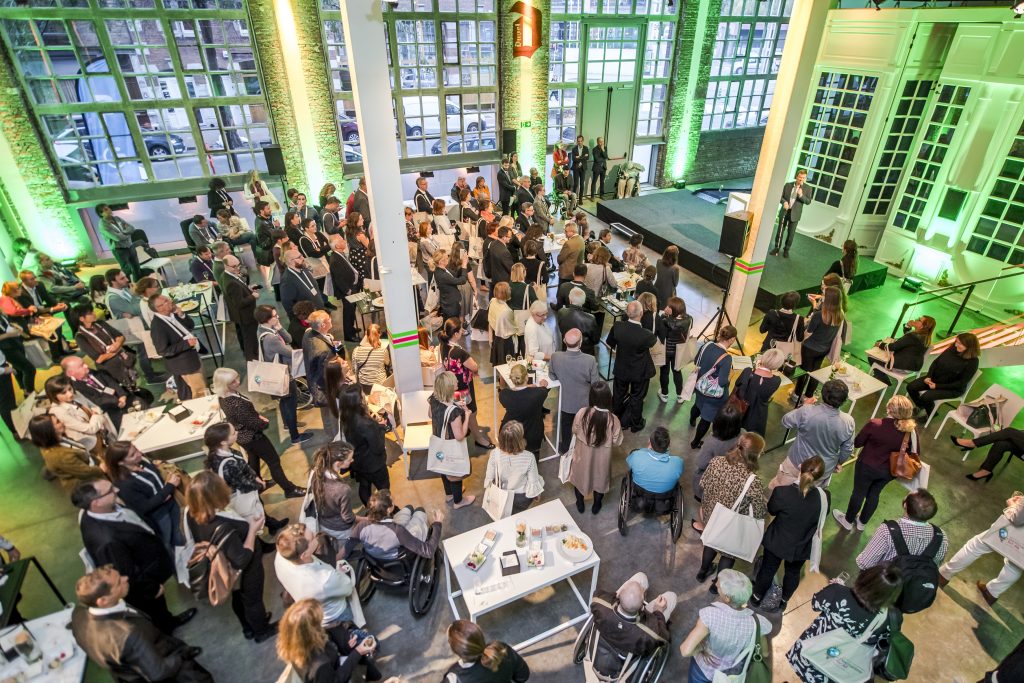 Over 400 participants from
Over 400 participants from 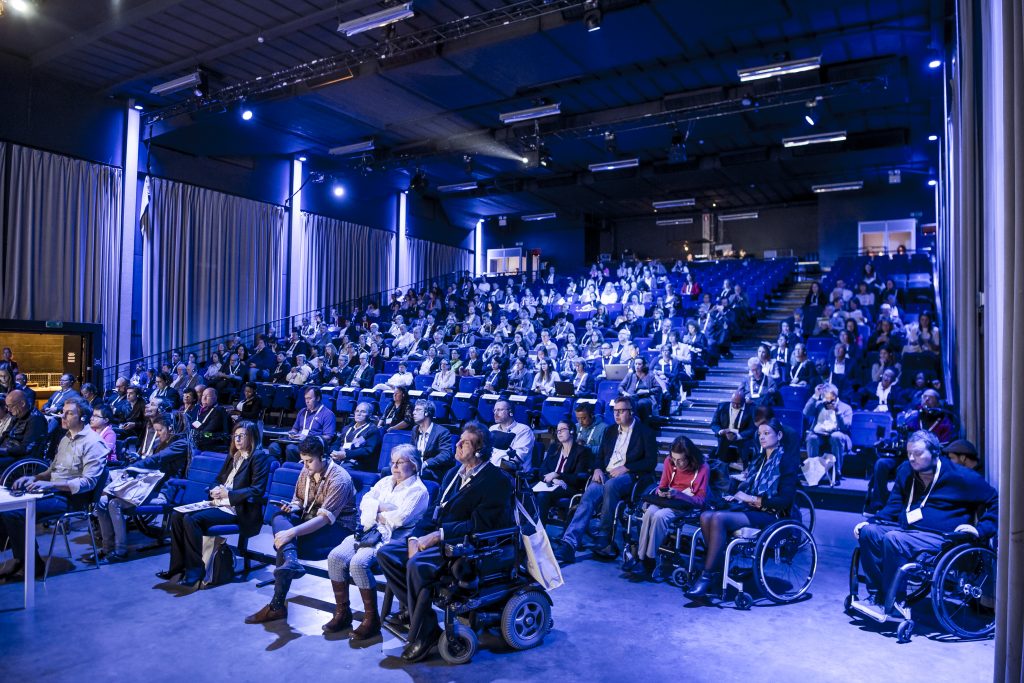
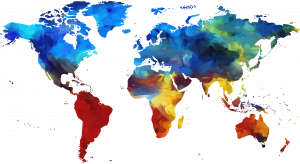 Argentina
Australia
Austria
Barbados
Belarus
Belgium
Brazil
Canada
Chile
Costa Rica
Cyprus
Denmark
Estonia
Finland
France
Germany
India
Israel
Italy
Japan
Lebanon
Luxembourg
Martinique
Nepal
Netherlands
New Zealand
Palestine
Peru
Poland
Portugal
Slovenia
South Africa
Spain
Sudan
Sweden
Switzerland
Ukraine
United Arab Emirates
United Kingdom
United States
Argentina
Australia
Austria
Barbados
Belarus
Belgium
Brazil
Canada
Chile
Costa Rica
Cyprus
Denmark
Estonia
Finland
France
Germany
India
Israel
Italy
Japan
Lebanon
Luxembourg
Martinique
Nepal
Netherlands
New Zealand
Palestine
Peru
Poland
Portugal
Slovenia
South Africa
Spain
Sudan
Sweden
Switzerland
Ukraine
United Arab Emirates
United Kingdom
United States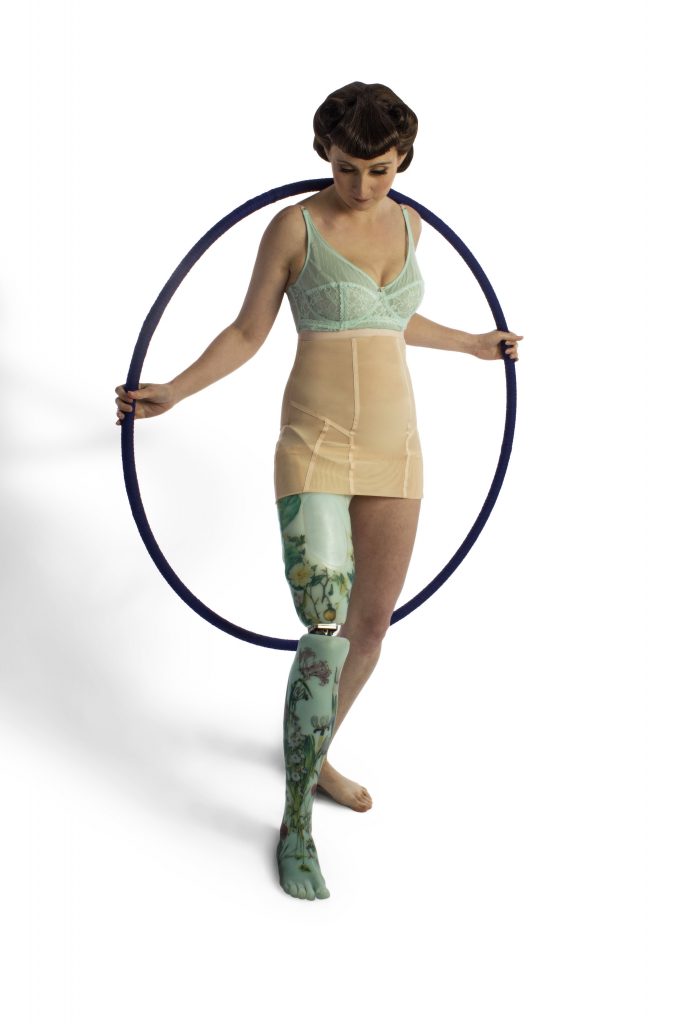 Kiera Roche portant la Floral Porcelaine Leg - photographie Rosemary Williams & Nadav Kander © The Alternative Limb Project[/caption]
Exoskeletons, glasses for the visually impaired, bionic prosthetics... the research on sensory, motor and mental disabilities has led to countless inventions stemming from new technologies. These innovations have undoubtedly improved the daily lives of people living with handicaps and of their carers, but they have also opened new social debates on and forms of protest against human enhancement and transhumanism. These debates are also a topic of reflection and critique by artists.
The perspective taken by the exhibition will show a wide range of historical objects, placing the emphasis on digital devices, visual arts, outsider art, short films and objects designed with the latest technologies. It will be divided into four themes: perceive, experience, challenge and imagine.
The exhibition The Art of Difference falls in line with the Year of Diversity (Année des Diversités) at ULB and is supported by the City of Brussels.
The Art of Difference addresses the general public (a trilingual exhibition in FR/NL/EN), and bilingual students will be trained to welcome and guide visitors (school groups, non-profit organisations and visits specifically for those with visual or auditory impairments).
Kiera Roche portant la Floral Porcelaine Leg - photographie Rosemary Williams & Nadav Kander © The Alternative Limb Project[/caption]
Exoskeletons, glasses for the visually impaired, bionic prosthetics... the research on sensory, motor and mental disabilities has led to countless inventions stemming from new technologies. These innovations have undoubtedly improved the daily lives of people living with handicaps and of their carers, but they have also opened new social debates on and forms of protest against human enhancement and transhumanism. These debates are also a topic of reflection and critique by artists.
The perspective taken by the exhibition will show a wide range of historical objects, placing the emphasis on digital devices, visual arts, outsider art, short films and objects designed with the latest technologies. It will be divided into four themes: perceive, experience, challenge and imagine.
The exhibition The Art of Difference falls in line with the Year of Diversity (Année des Diversités) at ULB and is supported by the City of Brussels.
The Art of Difference addresses the general public (a trilingual exhibition in FR/NL/EN), and bilingual students will be trained to welcome and guide visitors (school groups, non-profit organisations and visits specifically for those with visual or auditory impairments).
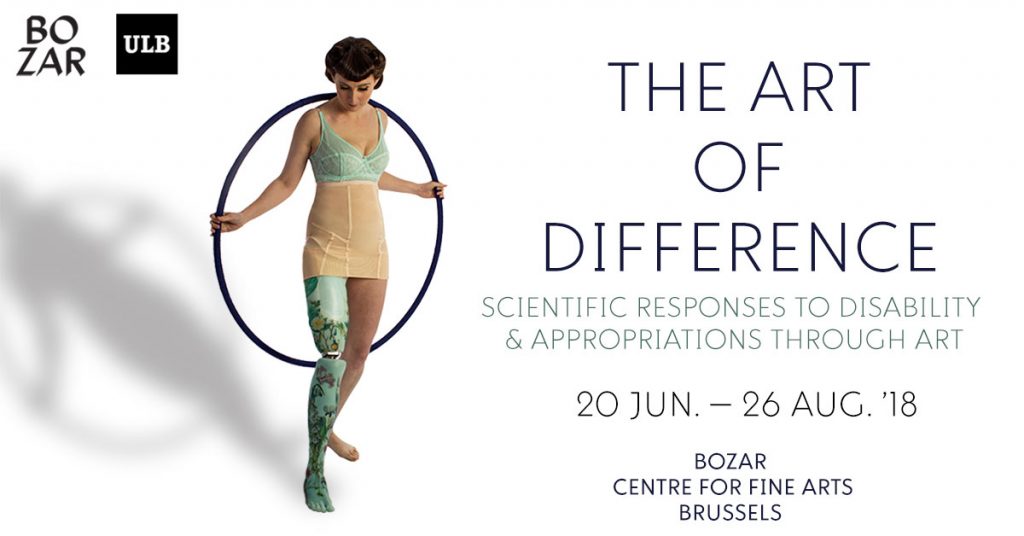
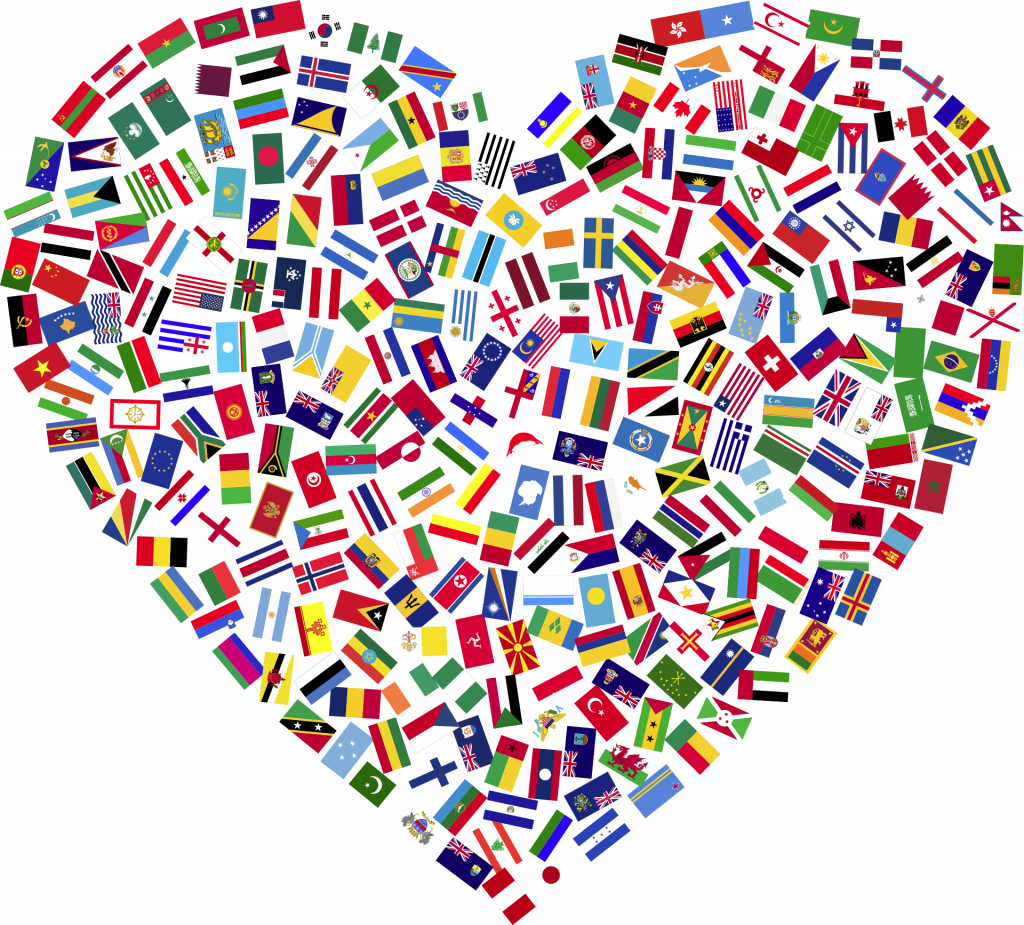 Argentina, Australia, Austria, Barbados, Belgium, Brazil, Canada, Denmark, Estonia, Finland, France, Gambia, Germany, India, Israel, Italy, Japan, Lebanon, Luxembourg, Martinique, Nepal, The Netherlands, New Zealand, Palestine, Poland, Portugal, South Africa, Spain, Sri Lanka, Sweden, Switzerland, Ukraine, United Arab Emirates, United Kingdom and United States.
The participants represent a broad range of sectors such as government decision makers, destination managers, tourism business leaders, civil society actors, and professional associations in the tourism and travel industry.
Argentina, Australia, Austria, Barbados, Belgium, Brazil, Canada, Denmark, Estonia, Finland, France, Gambia, Germany, India, Israel, Italy, Japan, Lebanon, Luxembourg, Martinique, Nepal, The Netherlands, New Zealand, Palestine, Poland, Portugal, South Africa, Spain, Sri Lanka, Sweden, Switzerland, Ukraine, United Arab Emirates, United Kingdom and United States.
The participants represent a broad range of sectors such as government decision makers, destination managers, tourism business leaders, civil society actors, and professional associations in the tourism and travel industry.
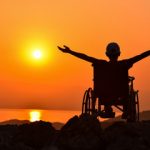


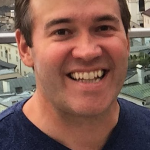 John Sage (Accessible Travel Solutions - USA)[/caption]
John Sage | Accessible Travel Solutions (USA)
Most people don’t have the time, money, or energy to visit all of the worthwhile destinations in Europe. If a disabled traveler can only take a few European vacations, how should they prioritize their list?
John Sage (Accessible Travel Solutions - USA)[/caption]
John Sage | Accessible Travel Solutions (USA)
Most people don’t have the time, money, or energy to visit all of the worthwhile destinations in Europe. If a disabled traveler can only take a few European vacations, how should they prioritize their list?
 Rustom Irani (Cox & Kings (Enable Travel) - India)[/caption]
Rustom Irani | Cox & Kings-Enable Travel (India)
According to the census, 20.3% of the Indian population are wheelchair bound, 18.8% are vision impaired, 18.9% are hearing impaired and 7.5% are speech impaired. Travel for the disabled is an untapped market which holds tremendous potential. Category creation and market penetration will be key.
Rustom Irani (Cox & Kings (Enable Travel) - India)[/caption]
Rustom Irani | Cox & Kings-Enable Travel (India)
According to the census, 20.3% of the Indian population are wheelchair bound, 18.8% are vision impaired, 18.9% are hearing impaired and 7.5% are speech impaired. Travel for the disabled is an untapped market which holds tremendous potential. Category creation and market penetration will be key.
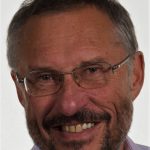 Richard Thompson (Travel Counsellors - UK)[/caption]
Richard Thompson | Travel Counsellors (UK)
Let's change the way the wider industry views the sector: The ‘Making Travel Accessible World Tour’ project is developped across Australia, South Africa, the UAE, Netherlands & Belgium and Ireland to inculcate thinking and practical approach that will transform the future travel opportunities of those who may believe they have none.
Richard Thompson (Travel Counsellors - UK)[/caption]
Richard Thompson | Travel Counsellors (UK)
Let's change the way the wider industry views the sector: The ‘Making Travel Accessible World Tour’ project is developped across Australia, South Africa, the UAE, Netherlands & Belgium and Ireland to inculcate thinking and practical approach that will transform the future travel opportunities of those who may believe they have none.
 Holger Kähler (Videlis Seniorenreisen e.V. - Germany)[/caption]
Holger Kähler | Videlis Seniorenreisen e.V. (Germany)
Holger Kähler (Videlis Seniorenreisen e.V. - Germany)[/caption]
Holger Kähler | Videlis Seniorenreisen e.V. (Germany)
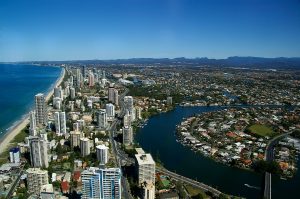 Lenna Klintworth - destination management officer for the regional tourism organisation Destination Gold Coast in Australia, will explain the substantial transformation and infrastructural requirements that the City of Gold Coast has achieved to welcome the world to the largest ever inclusive Commonwealth Games in 2018 (GC2018).
A starting point that transformed the City of Gold Coast into the most accessible city in the State of Queensland!
It will shown you the way to inclusiveness.
Lenna Klintworth - destination management officer for the regional tourism organisation Destination Gold Coast in Australia, will explain the substantial transformation and infrastructural requirements that the City of Gold Coast has achieved to welcome the world to the largest ever inclusive Commonwealth Games in 2018 (GC2018).
A starting point that transformed the City of Gold Coast into the most accessible city in the State of Queensland!
It will shown you the way to inclusiveness.
 For Luc Thulliez of the Ministry of Economy and Finance in France, working on accessibility for all also offers significant economic opportunities.
While France launches two national labels -Tourisme & Handicap (T & H, France) and Destinations pour Tous (DPT, France)- Luc will present its strategy for developing and promoting Accessible tourism labels in close relations with private and public stakeholders.
Luc will give concrete tips and tricks on how we can make this reference of accessible tourism a reality and promote a country like France as a tourist destination for all.
For Luc Thulliez of the Ministry of Economy and Finance in France, working on accessibility for all also offers significant economic opportunities.
While France launches two national labels -Tourisme & Handicap (T & H, France) and Destinations pour Tous (DPT, France)- Luc will present its strategy for developing and promoting Accessible tourism labels in close relations with private and public stakeholders.
Luc will give concrete tips and tricks on how we can make this reference of accessible tourism a reality and promote a country like France as a tourist destination for all.
 How to combine functionality, accessibility and cutting-edge design?
Ditte Kahlström Jansson of the Stockholm Transport Administration in Sweden is an expert on this question.
To make transport accessible, social, environmental, technical and other considerations must also be taken into account.
Thinking about and determining an accessibility-for-all project from the outset is a key factor.
How to combine functionality, accessibility and cutting-edge design?
Ditte Kahlström Jansson of the Stockholm Transport Administration in Sweden is an expert on this question.
To make transport accessible, social, environmental, technical and other considerations must also be taken into account.
Thinking about and determining an accessibility-for-all project from the outset is a key factor.
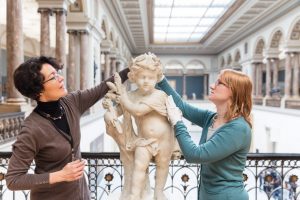 The 2nd World Summit on Accessible Tourism aims at sharing and disseminating best practices as much possible with the tourism sector in order to consolidate a global network of destinations for all, accessible to people with specific needs.
The 2nd World Summit on Accessible Tourism aims at sharing and disseminating best practices as much possible with the tourism sector in order to consolidate a global network of destinations for all, accessible to people with specific needs.
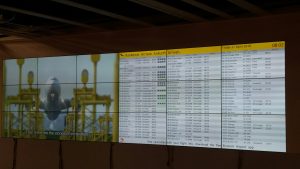 Day 1 (28 April) : Preparations for #dfa2018 on the way
The Organising Committee met in Belgium for six days. Michel Trudel and Jean-François Lavoie (
Day 1 (28 April) : Preparations for #dfa2018 on the way
The Organising Committee met in Belgium for six days. Michel Trudel and Jean-François Lavoie (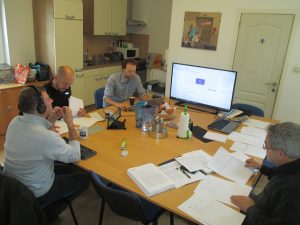 Day 2 (29 April) : Work in progress
We received 136 abstracts from 31 different countries. The review process by the Programme Committee took four weeks, following the close of the call for abstracts.
Day 2 (29 April) : Work in progress
We received 136 abstracts from 31 different countries. The review process by the Programme Committee took four weeks, following the close of the call for abstracts.
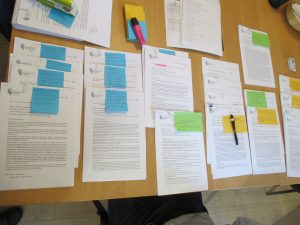 The clock is ticking – just a few hours remain for the
The clock is ticking – just a few hours remain for the 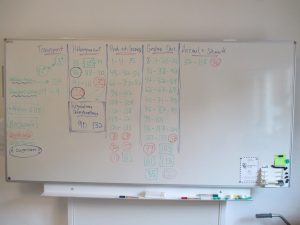 Yay! We came to 23 well-balanced sessions in the Summit five core topics, destination management, hosting and security, accommodation, leisure products and activities, and transport and mobility!
Yay! We came to 23 well-balanced sessions in the Summit five core topics, destination management, hosting and security, accommodation, leisure products and activities, and transport and mobility!
 Naidex 2018[/caption]
Naidex 2018[/caption]
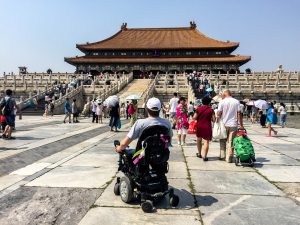 “As the demand for accessible tourism increases, popular movements seeking greater accessibility and the implementation of universal design practices are ripe for development. Such movements, borne out of discontent with elements of the (inaccessible) status quo, should be seen by governments, destinations and business owners as an opportunity, rather than a liability.”
As the operator of WheelchairTravel.org, one of the largest accessible travel websites on the Internet, John Morris represents tens of thousands of readers with disabilities from the United States and around the world who all share a passionate desire and determination to travel, and who should therefore play an important part in the travel economy. Thanks to his large readership and his own extensive travel experiences, which have given him a unique perspective on the disabled traveller, John Morris has become an influential spokesman for universal travel. He has involved the government and travel providers in the promotion of inclusive development and business practices.
With his passionate commitment to furthering the interest of travellers with disabilities, and examples of his dealings with legislators, government agencies, businesses, and the travel industry, he will share a set of best practices for engaging with and responding to the needs and demands of disabled travellers.
“As the demand for accessible tourism increases, popular movements seeking greater accessibility and the implementation of universal design practices are ripe for development. Such movements, borne out of discontent with elements of the (inaccessible) status quo, should be seen by governments, destinations and business owners as an opportunity, rather than a liability.”
As the operator of WheelchairTravel.org, one of the largest accessible travel websites on the Internet, John Morris represents tens of thousands of readers with disabilities from the United States and around the world who all share a passionate desire and determination to travel, and who should therefore play an important part in the travel economy. Thanks to his large readership and his own extensive travel experiences, which have given him a unique perspective on the disabled traveller, John Morris has become an influential spokesman for universal travel. He has involved the government and travel providers in the promotion of inclusive development and business practices.
With his passionate commitment to furthering the interest of travellers with disabilities, and examples of his dealings with legislators, government agencies, businesses, and the travel industry, he will share a set of best practices for engaging with and responding to the needs and demands of disabled travellers.
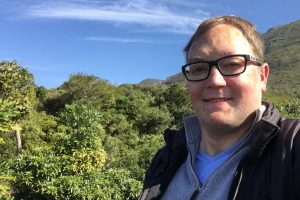 John Morris is the founder of WheelchairTravel.org (Orlando, FL, USA) and the owner of the Accessible Development Group. He holds a Bachelor's degree in History and Political Science and Master's degree in History from Florida State University and is now a resident of Orlando.
A triple amputee as the result of an accident, John is known for travelling the world with one hand, a passport and his power wheelchair, and he has become an advocate for inclusion within the travel industry. At #dfa2018, John Morris will eloquently share his vision for a world open to people with disabilities, and how it is possible to interest businesses and destination operators in the opportunities within the accessible travel marketplace.
John Morris is the founder of WheelchairTravel.org (Orlando, FL, USA) and the owner of the Accessible Development Group. He holds a Bachelor's degree in History and Political Science and Master's degree in History from Florida State University and is now a resident of Orlando.
A triple amputee as the result of an accident, John is known for travelling the world with one hand, a passport and his power wheelchair, and he has become an advocate for inclusion within the travel industry. At #dfa2018, John Morris will eloquently share his vision for a world open to people with disabilities, and how it is possible to interest businesses and destination operators in the opportunities within the accessible travel marketplace.
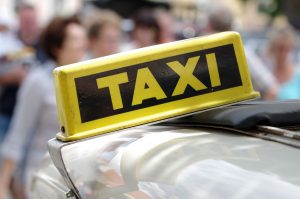 The session will address the main objective laid out in Article 10 of “A World for Everyone” that taxi and limousine dispatch companies are “to provide transportation services for persons with disabilities equivalent to those enjoyed by the general public”, and which was adopted in Montreal in 2014. The article is explicit in its stance on taxi accessibility for wheelchair users. Local authorities and public transport companies cannot continue to remain indifferent to the need for mobility for all, for any length of time. For this reason, UITP General Secretary Mohamed Mezghani will head the special seminar on this topic. The question of "How to ensure taxi service accessibility to everyone in each of our communities?” will be highlighted and central to the discussion. Eight international experts will present their experiences and opinions. This seminar will undoubtedly raise considerable interest from local authorities, especially those whose communities do not benefit from such a transport service.
The session will address the main objective laid out in Article 10 of “A World for Everyone” that taxi and limousine dispatch companies are “to provide transportation services for persons with disabilities equivalent to those enjoyed by the general public”, and which was adopted in Montreal in 2014. The article is explicit in its stance on taxi accessibility for wheelchair users. Local authorities and public transport companies cannot continue to remain indifferent to the need for mobility for all, for any length of time. For this reason, UITP General Secretary Mohamed Mezghani will head the special seminar on this topic. The question of "How to ensure taxi service accessibility to everyone in each of our communities?” will be highlighted and central to the discussion. Eight international experts will present their experiences and opinions. This seminar will undoubtedly raise considerable interest from local authorities, especially those whose communities do not benefit from such a transport service.
